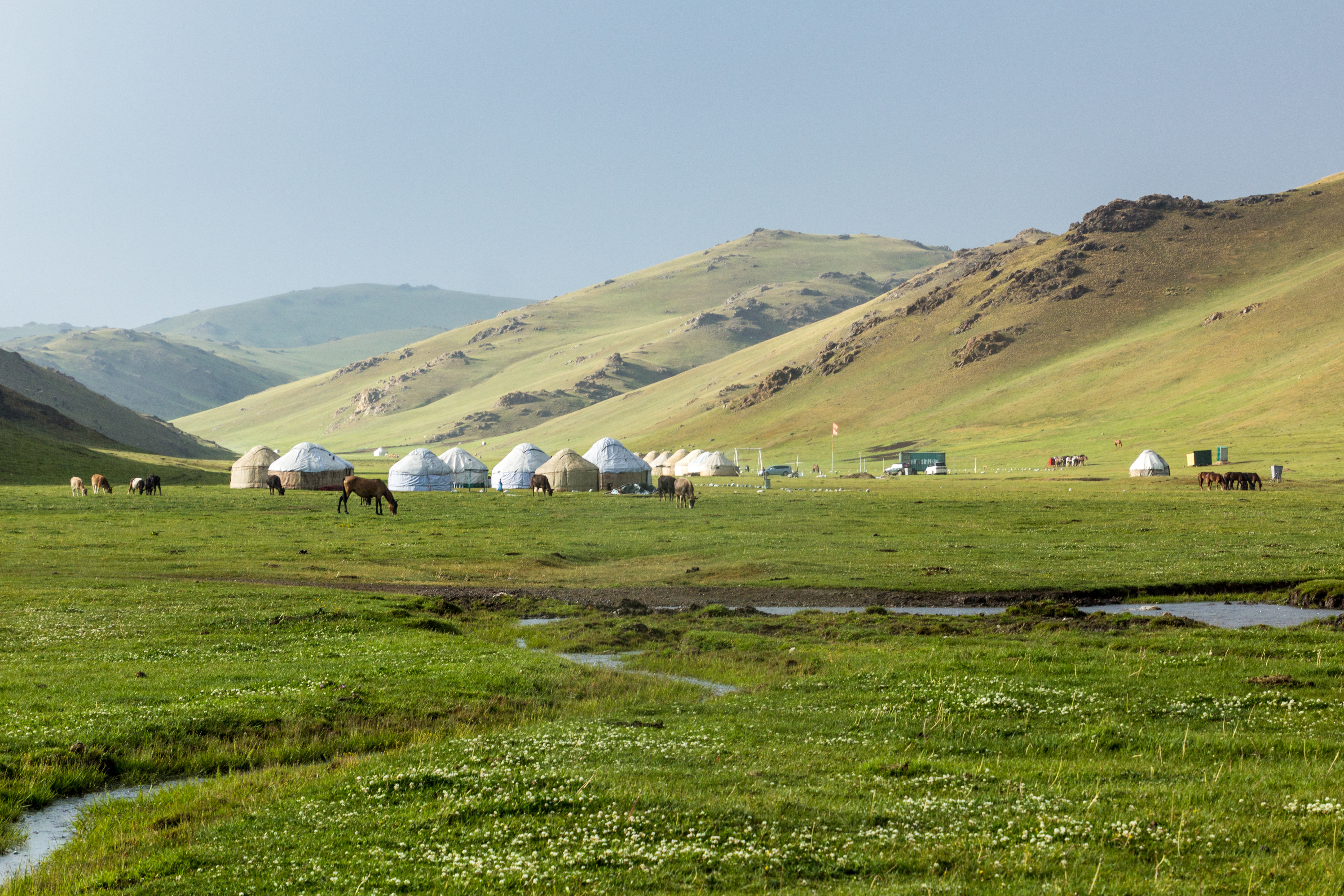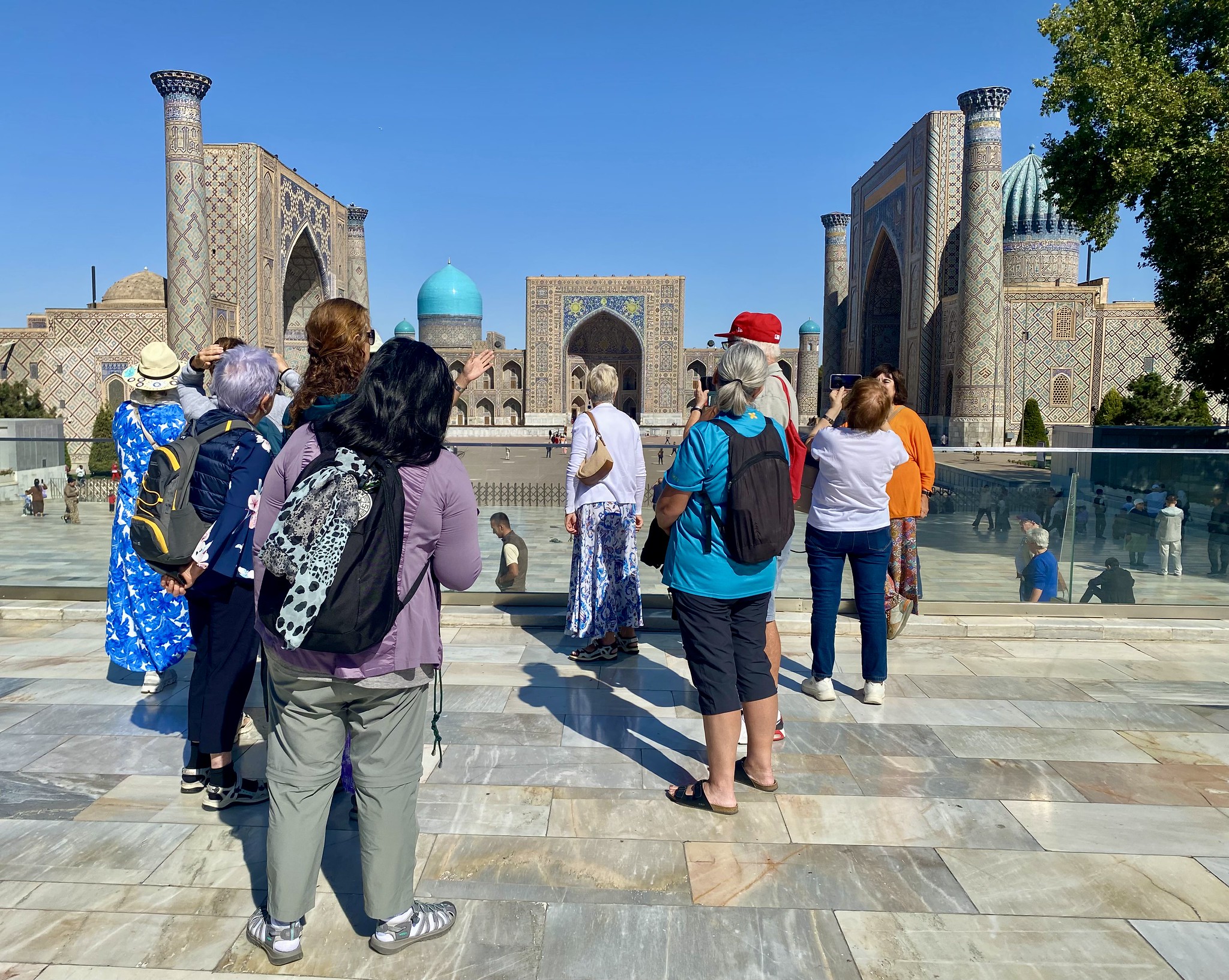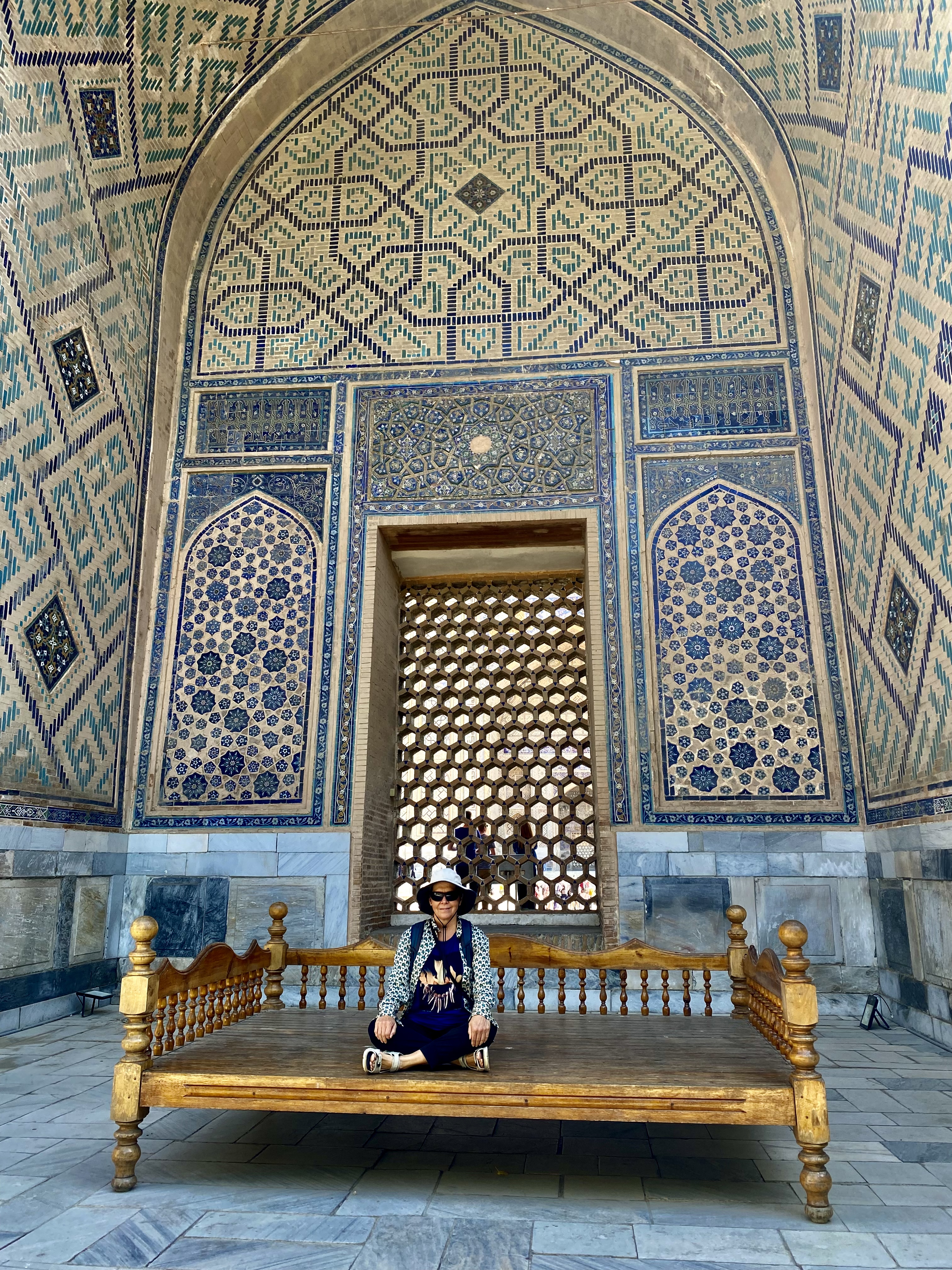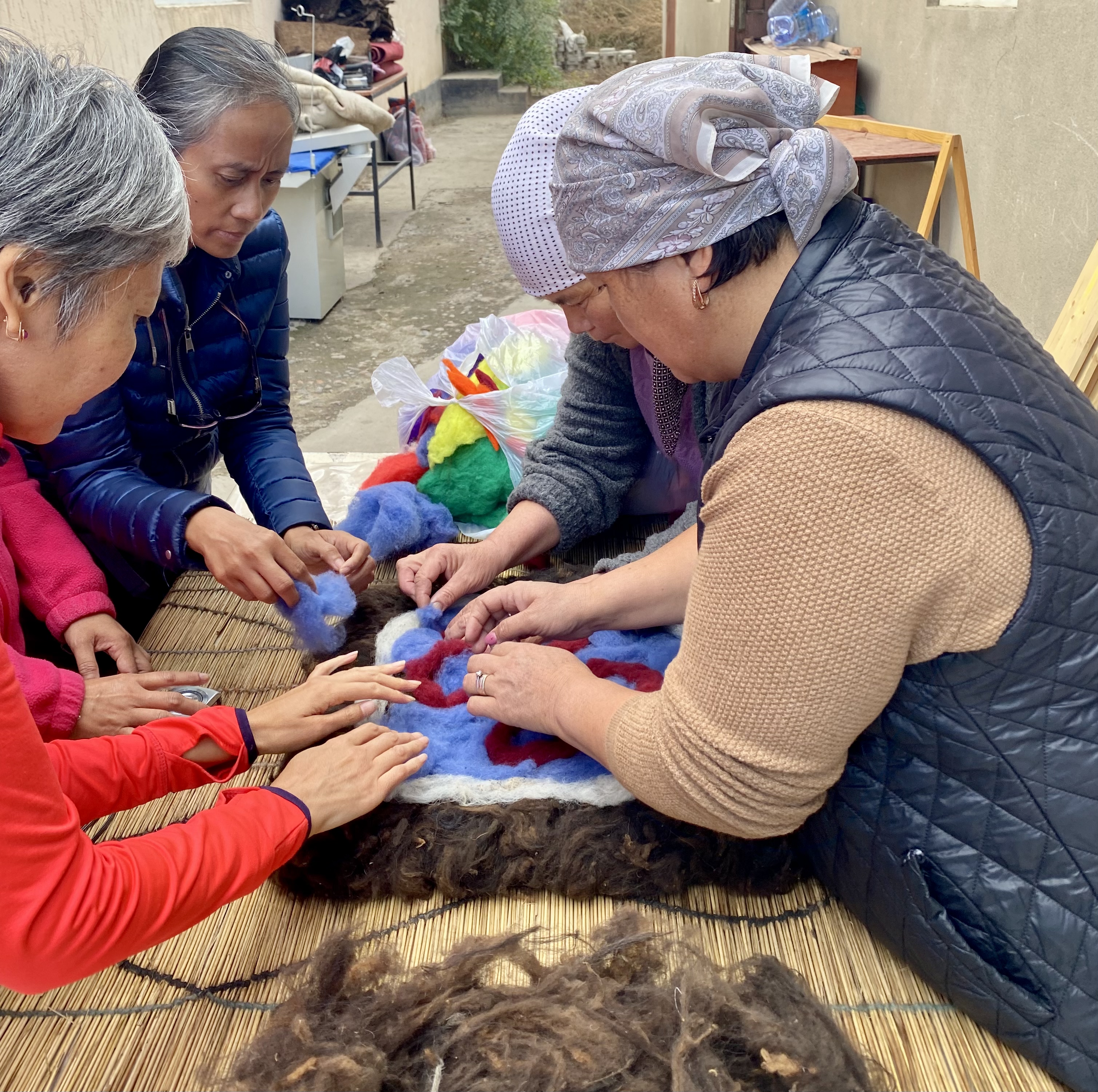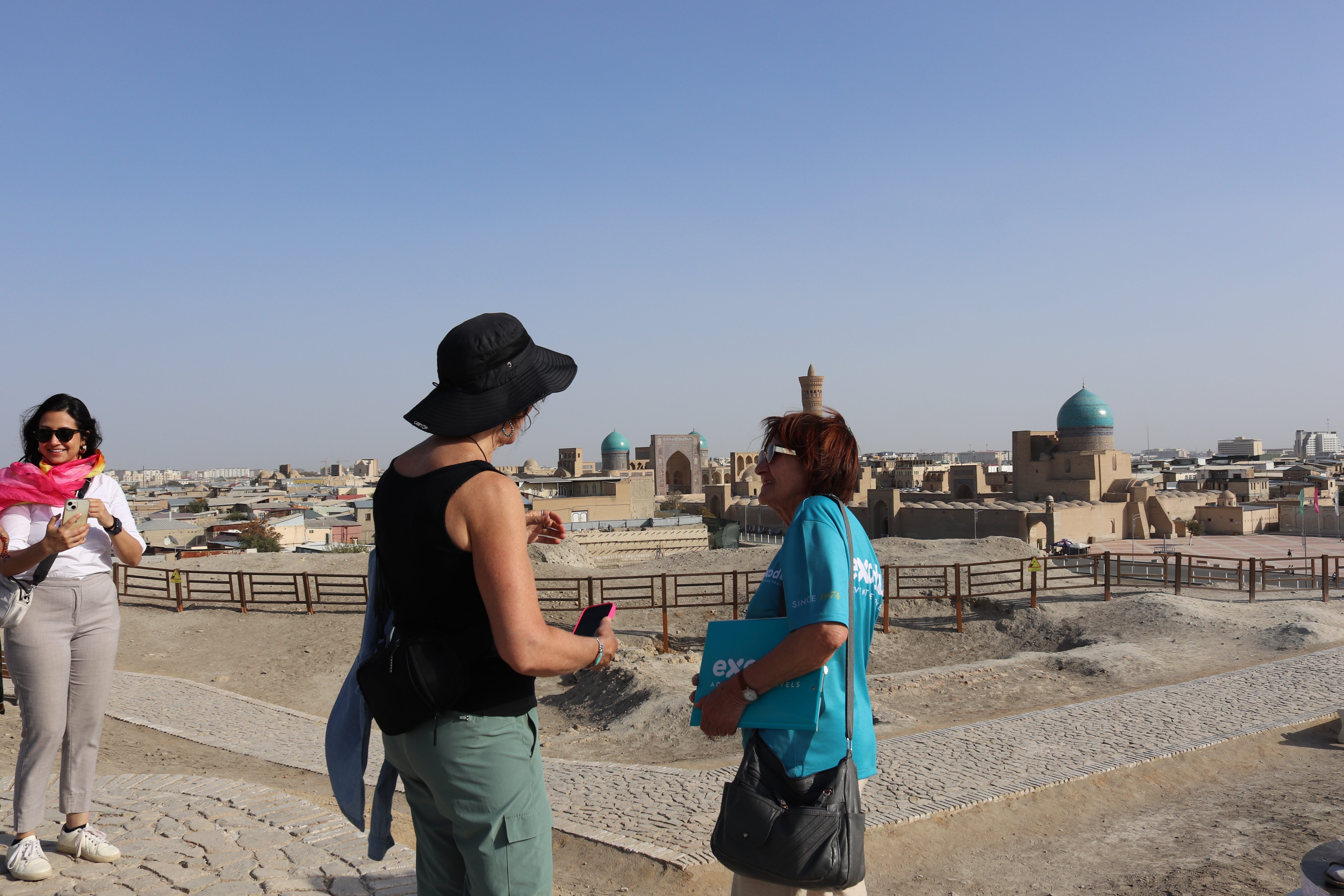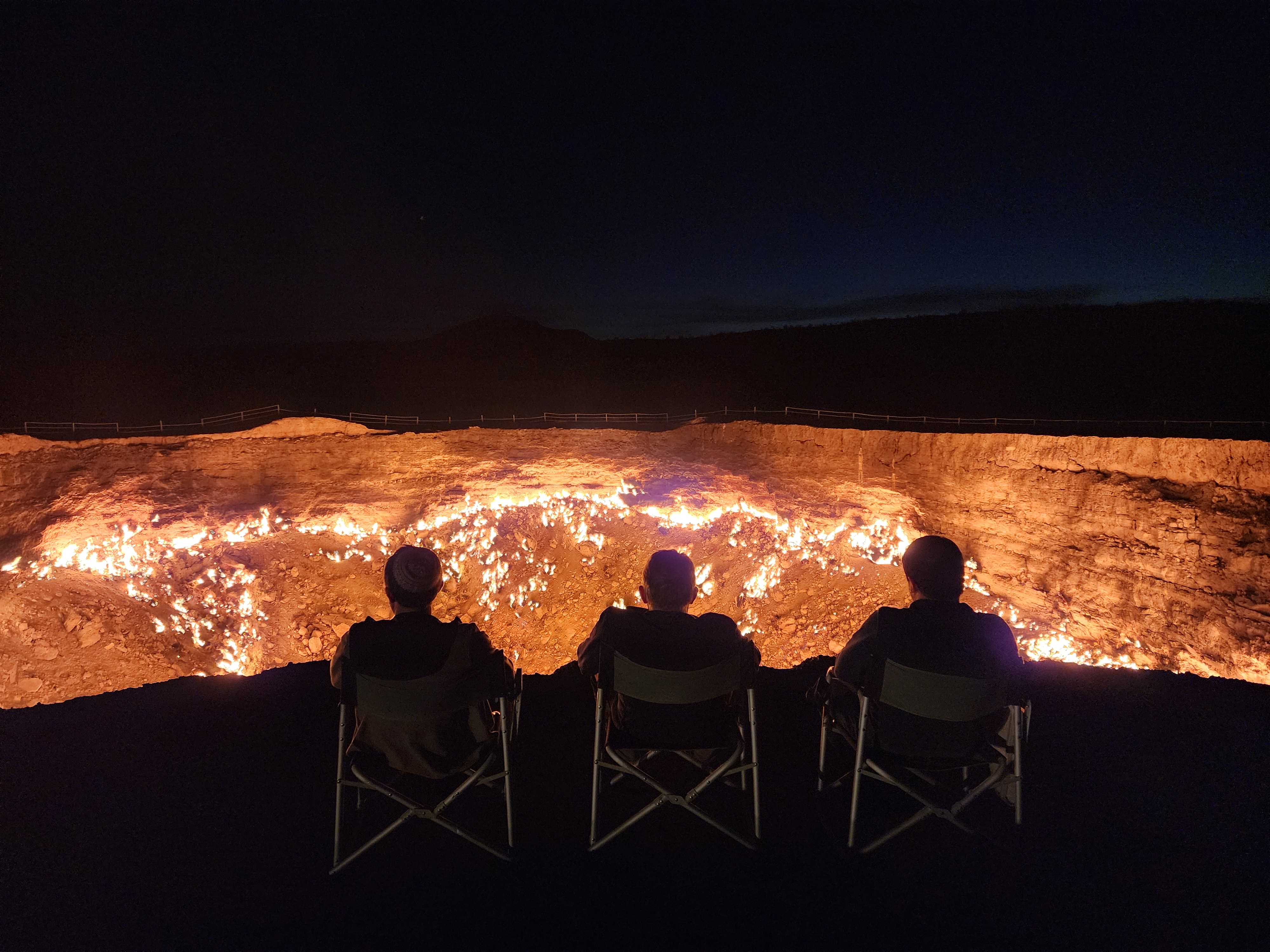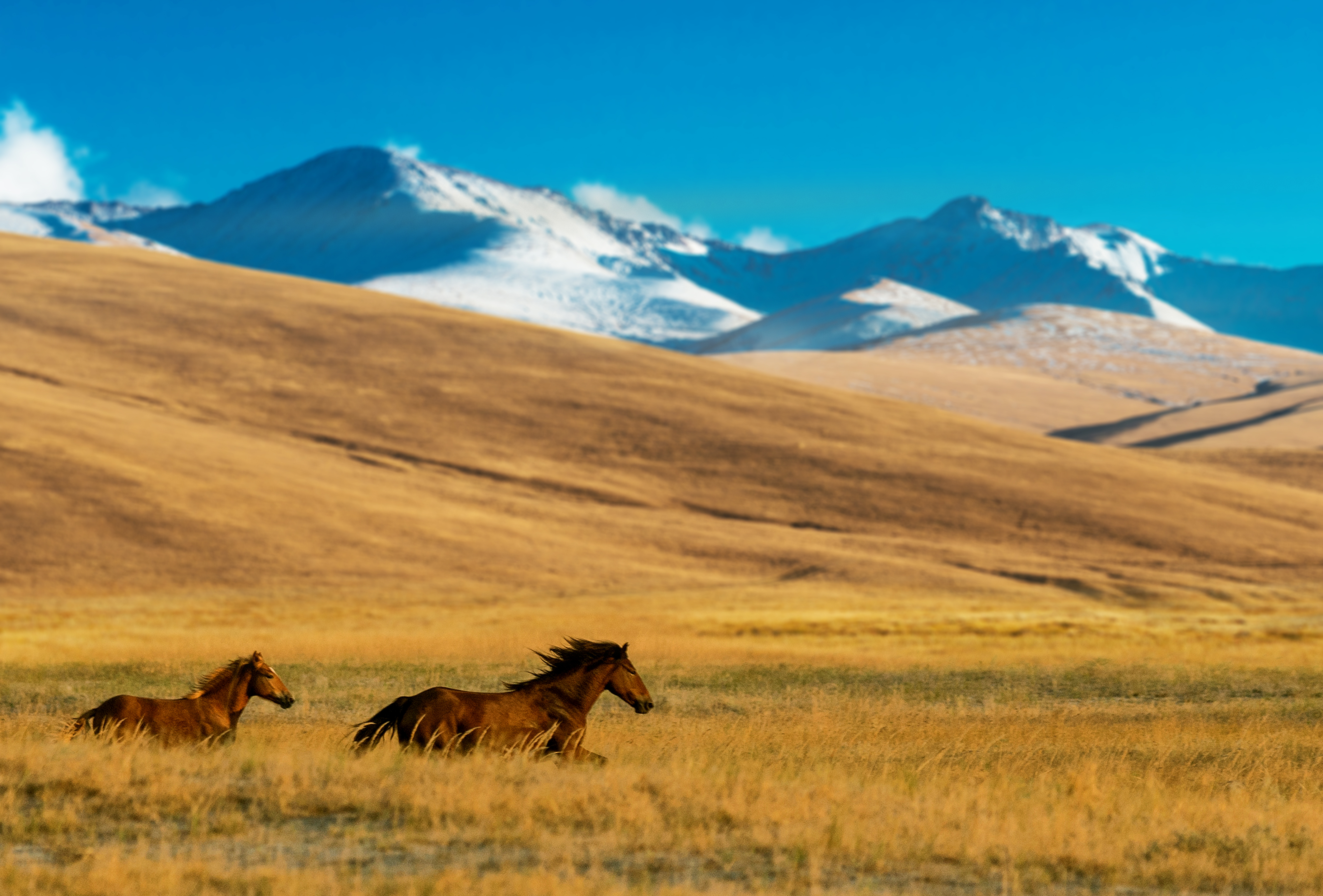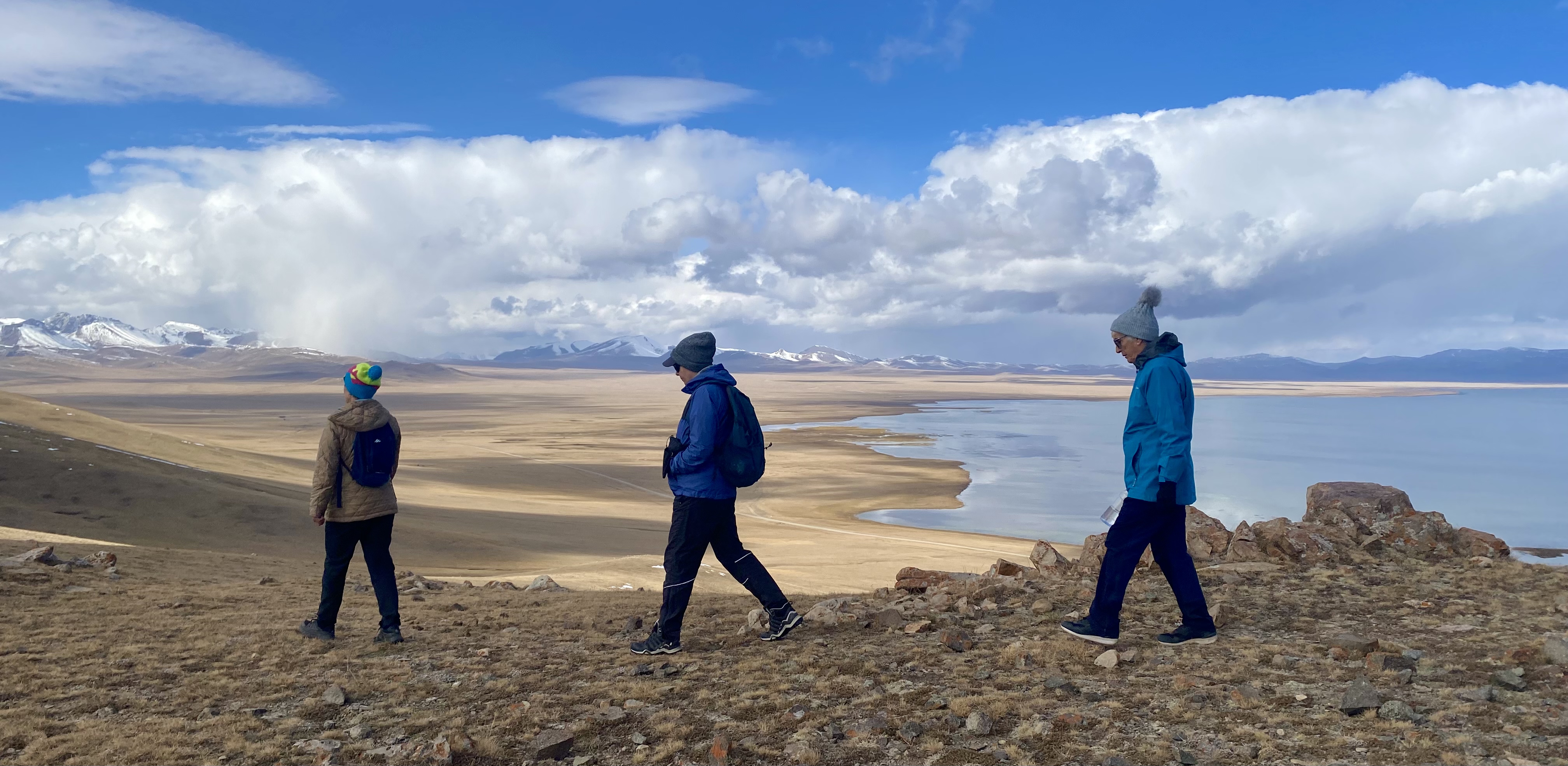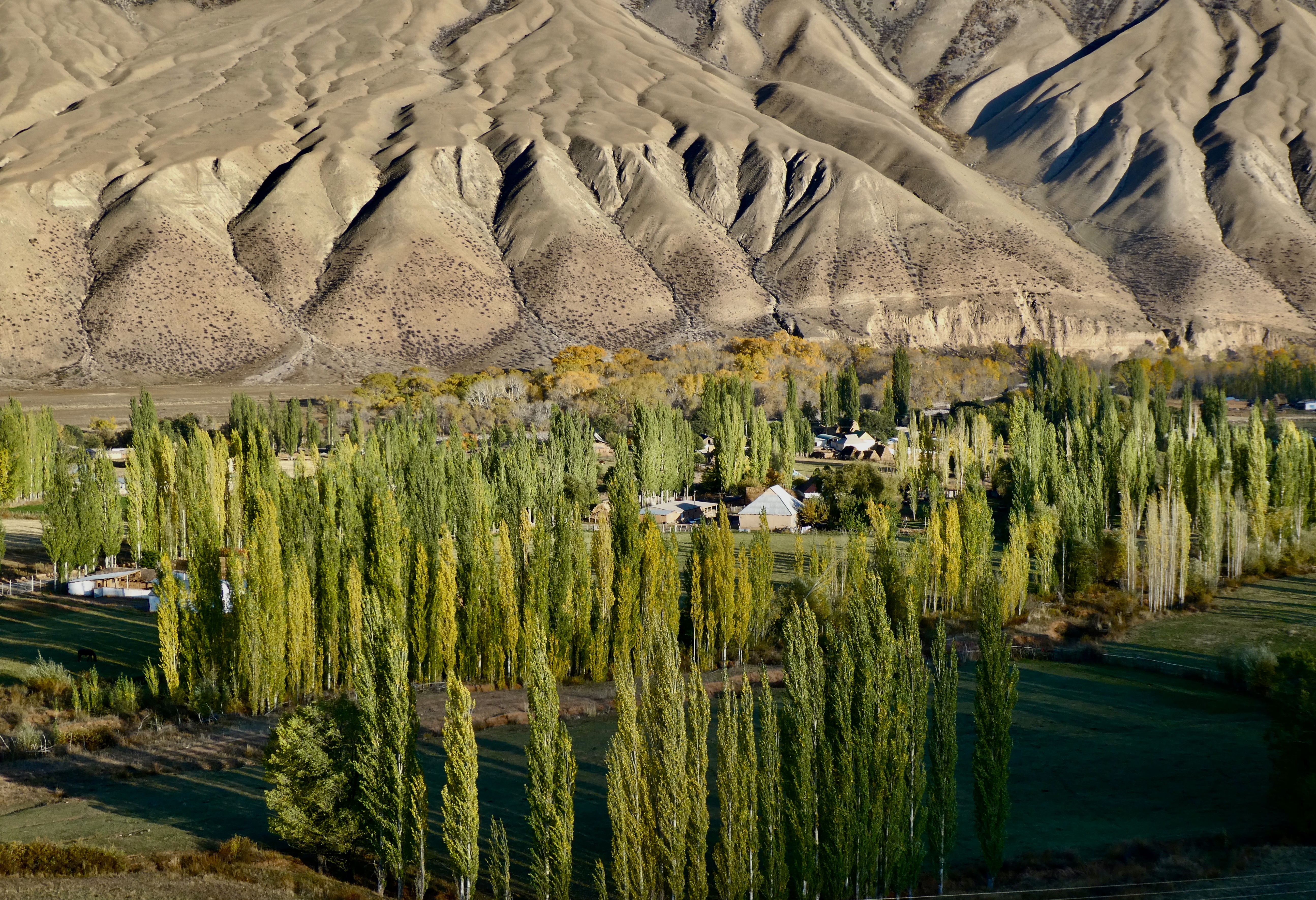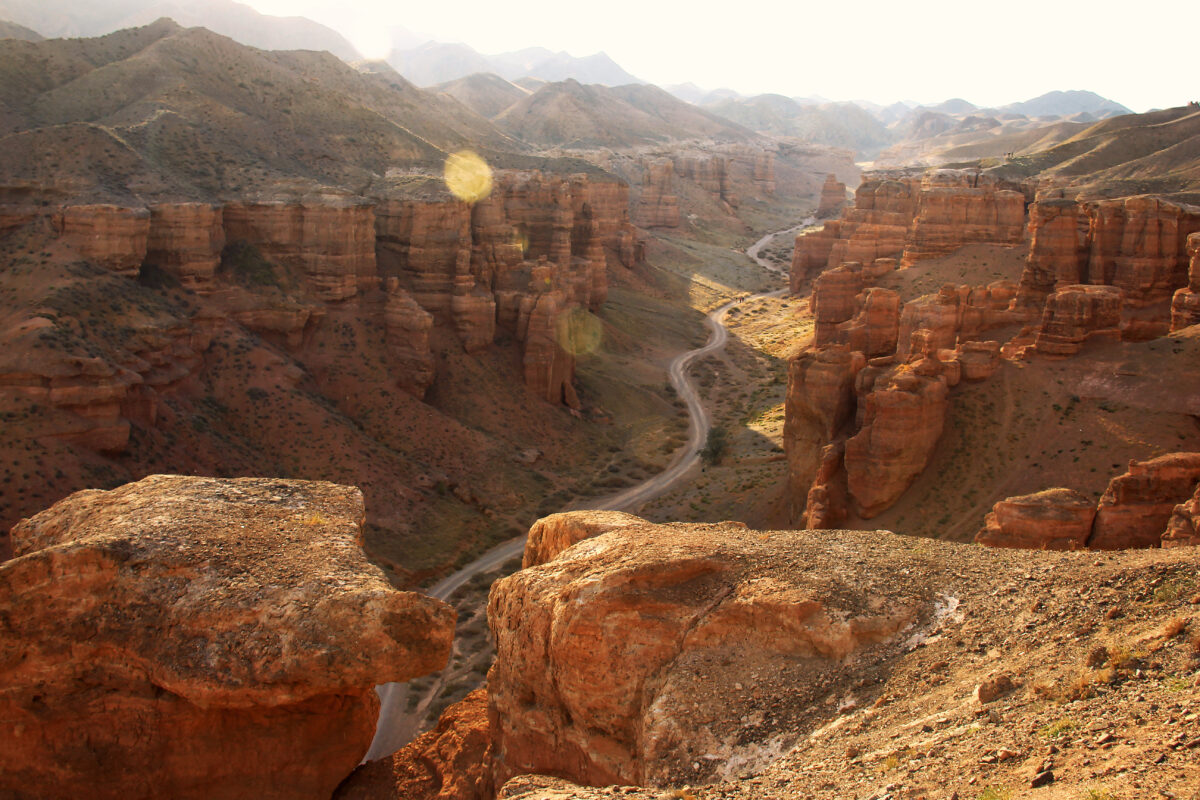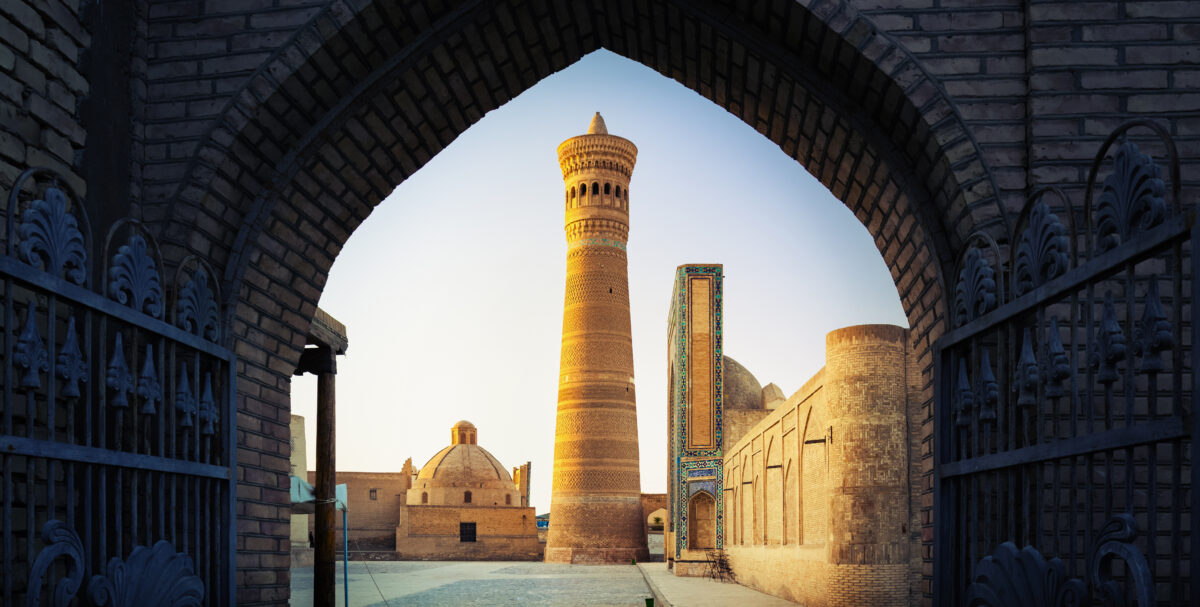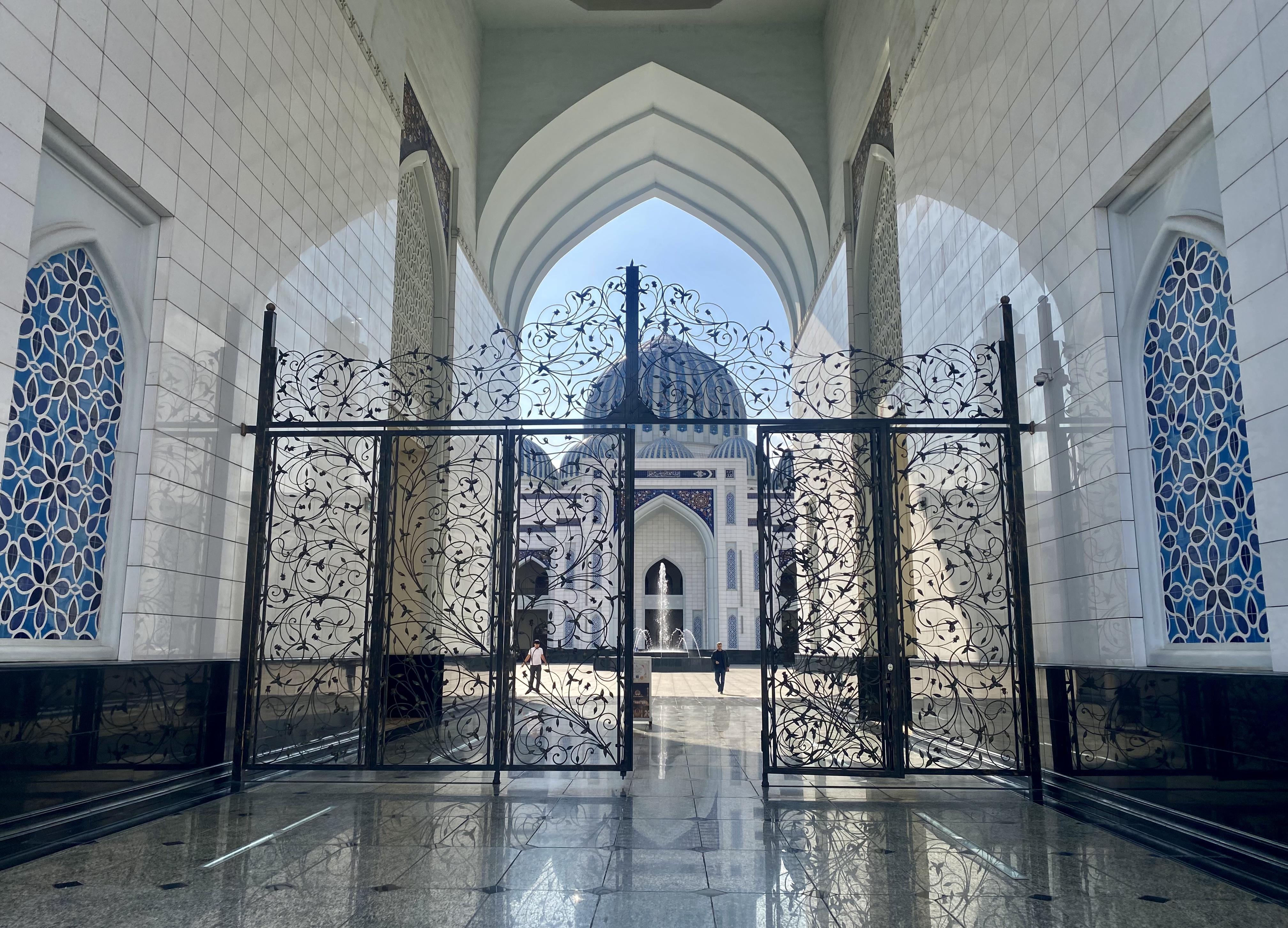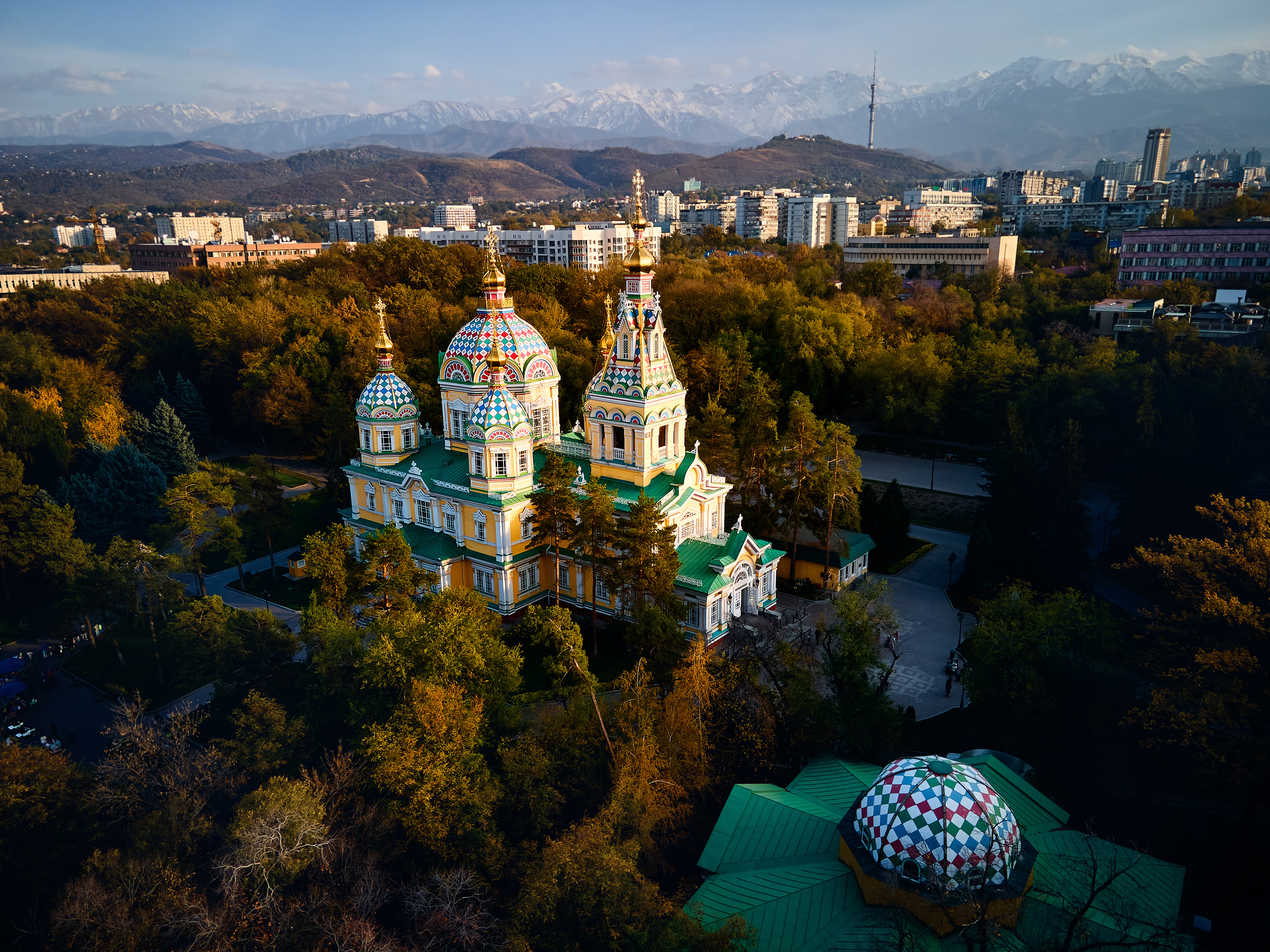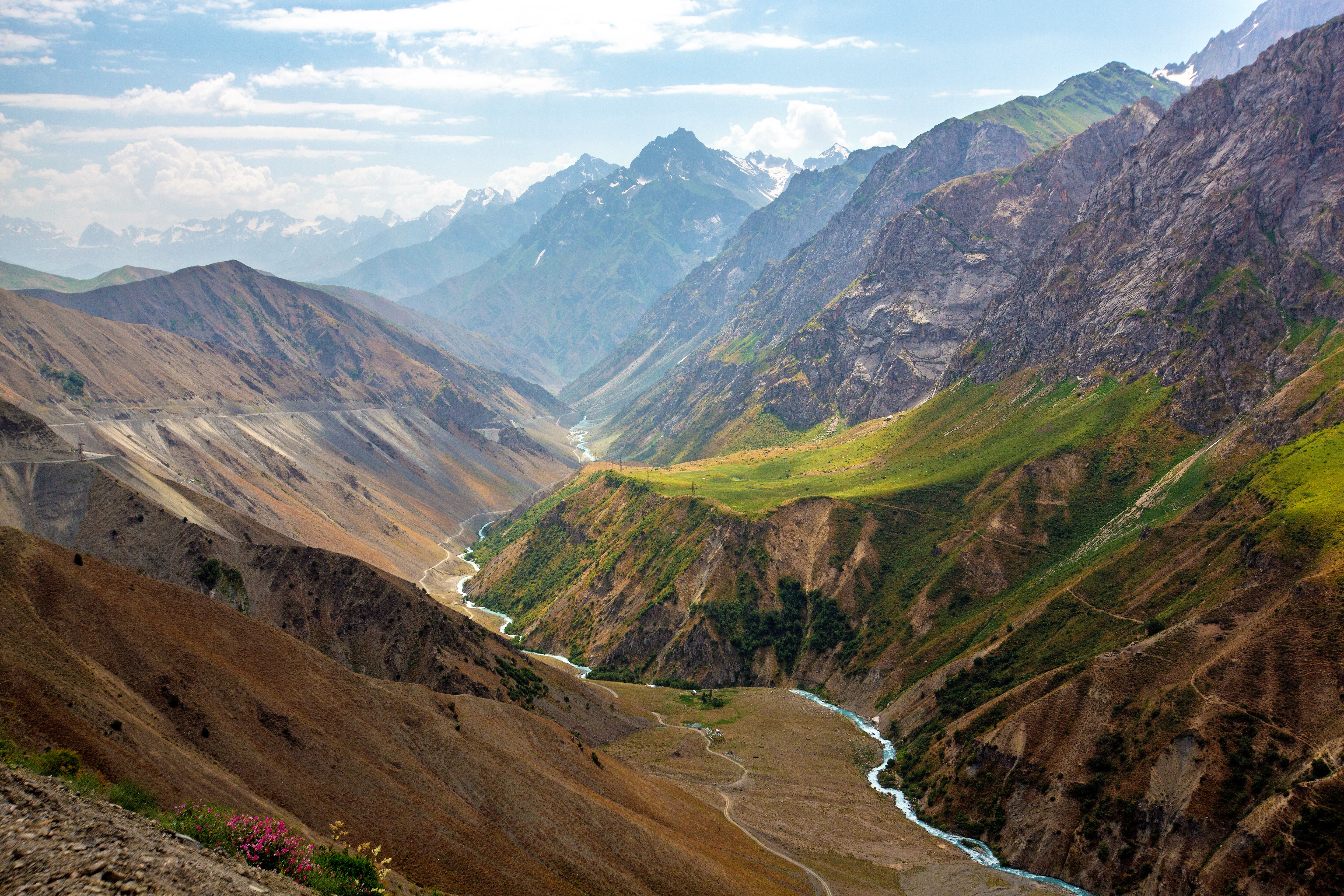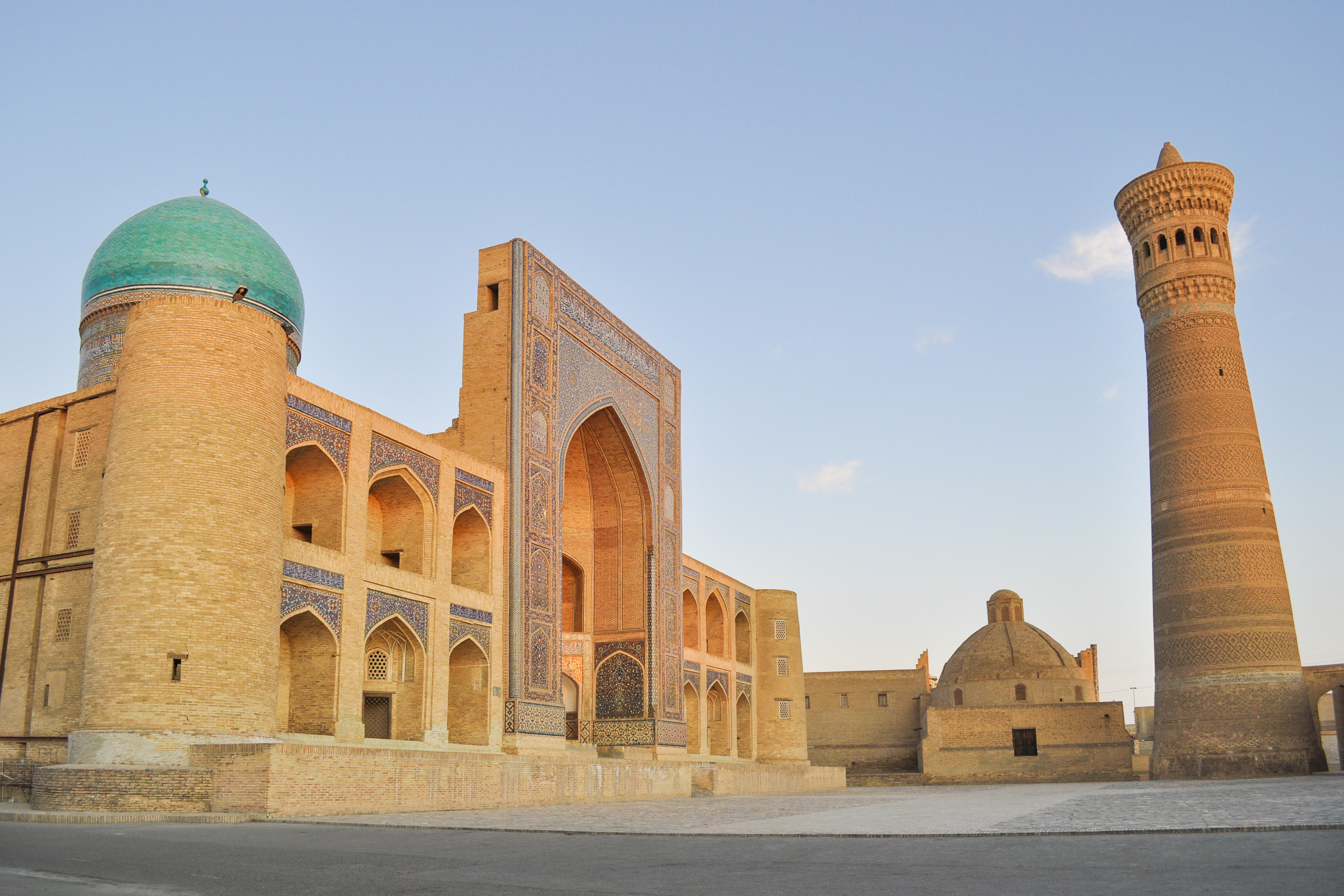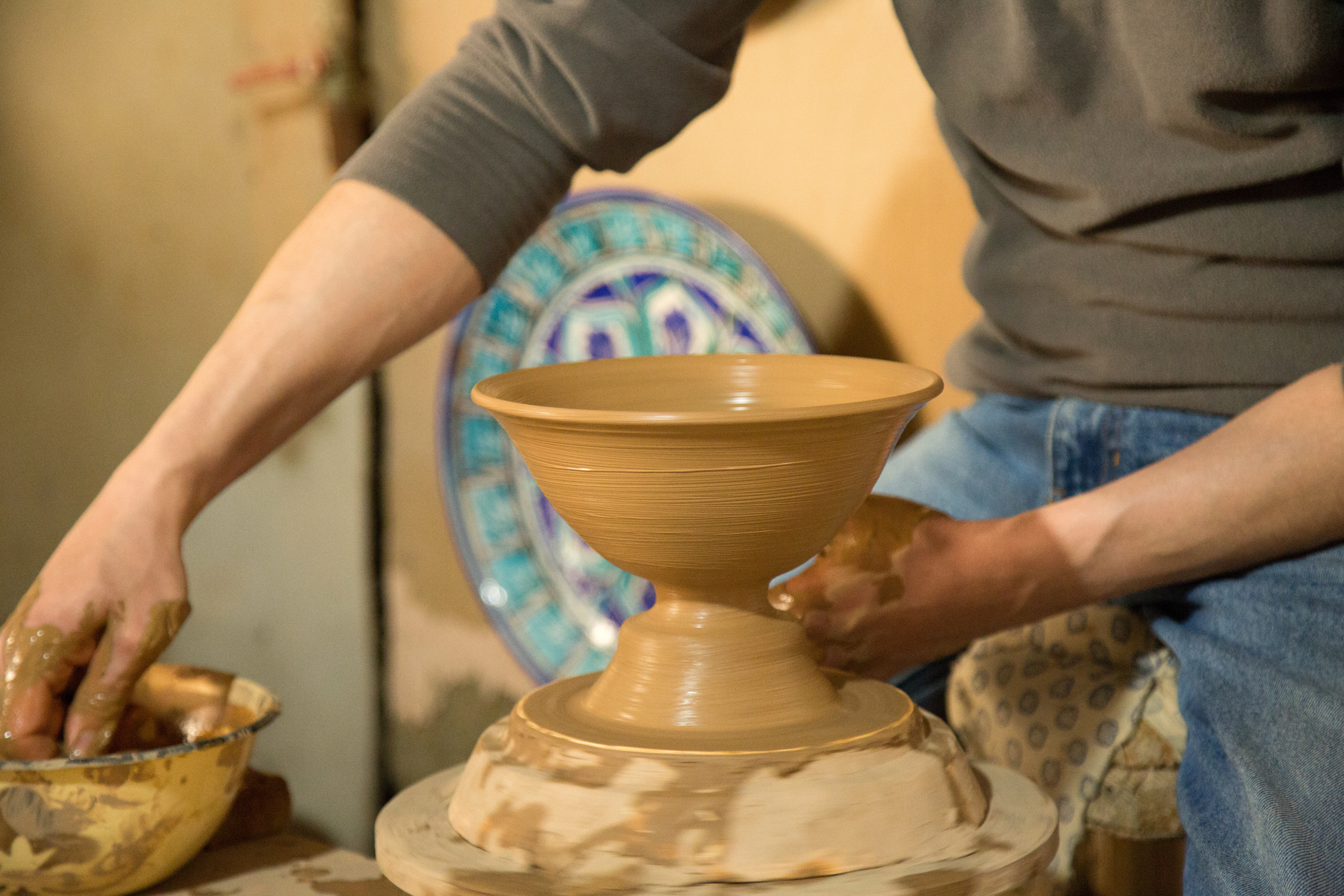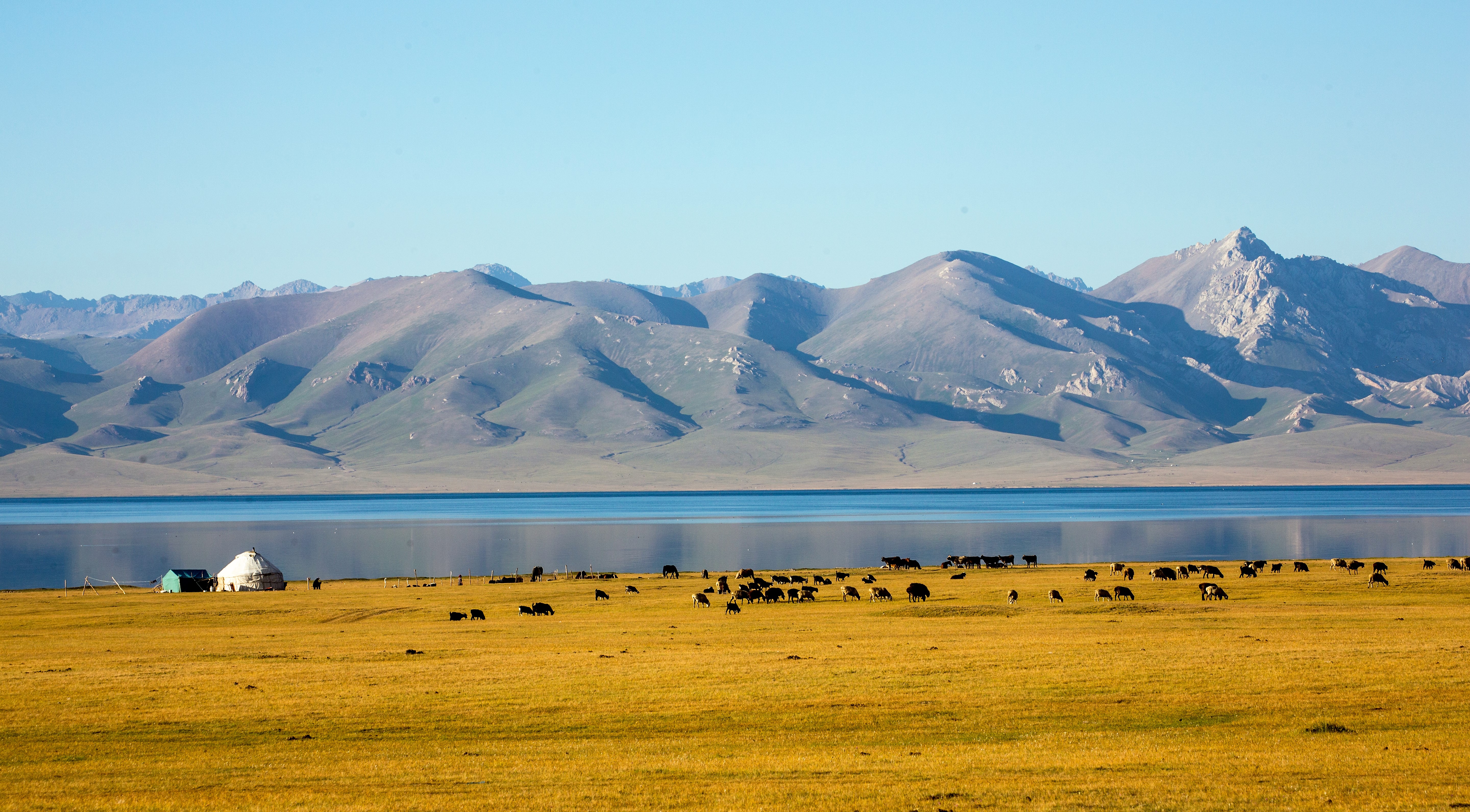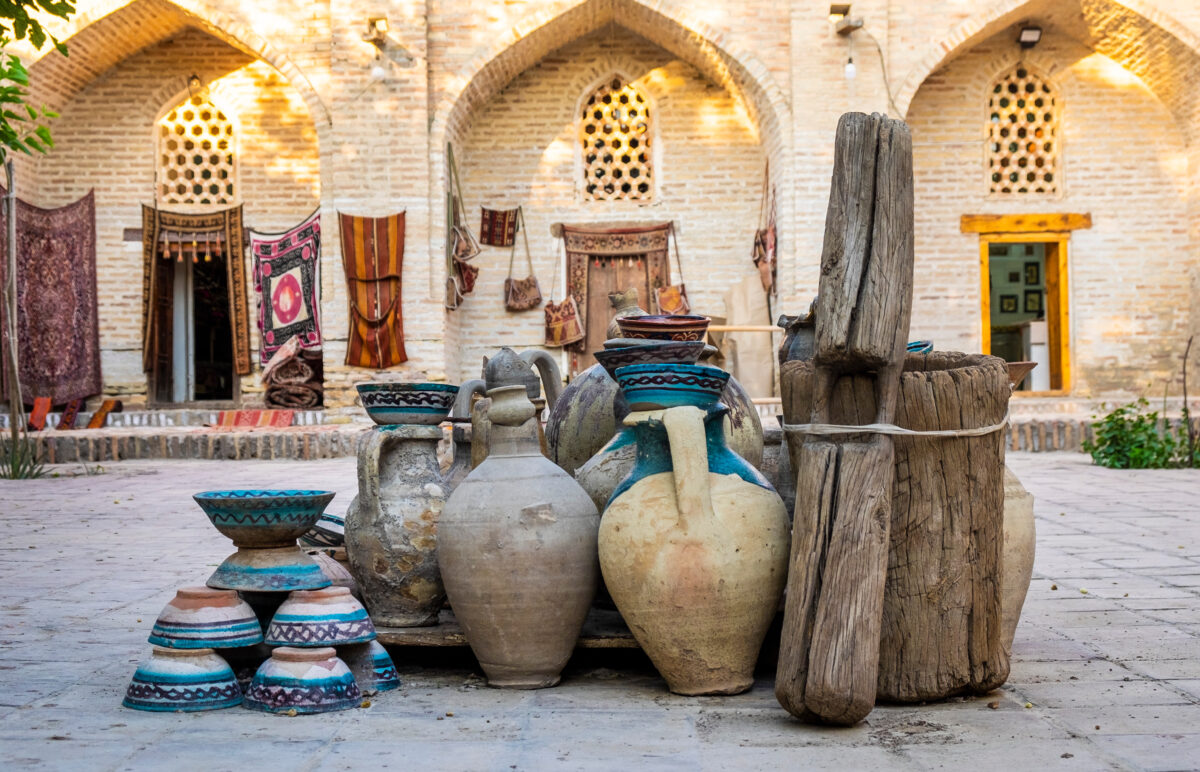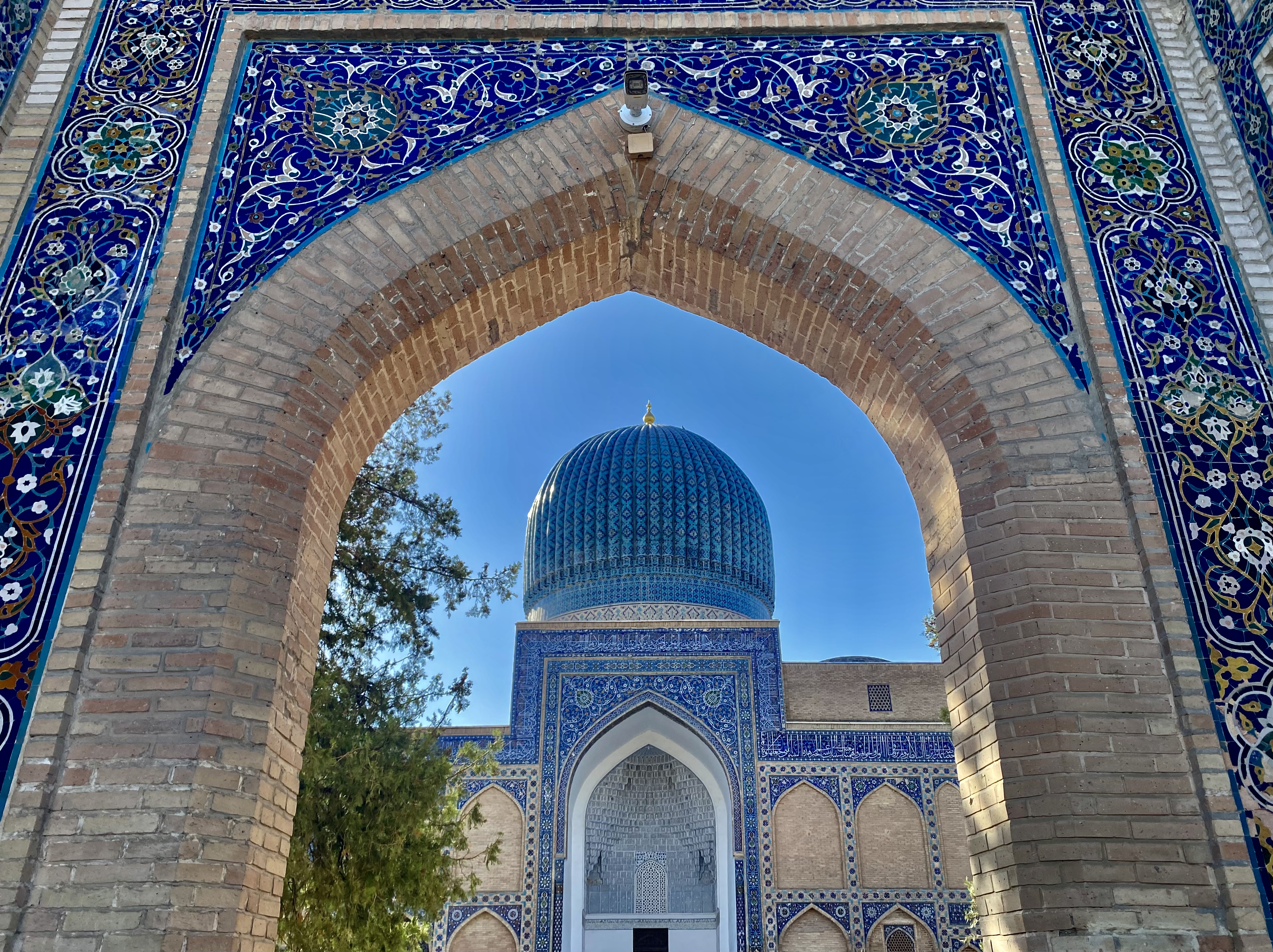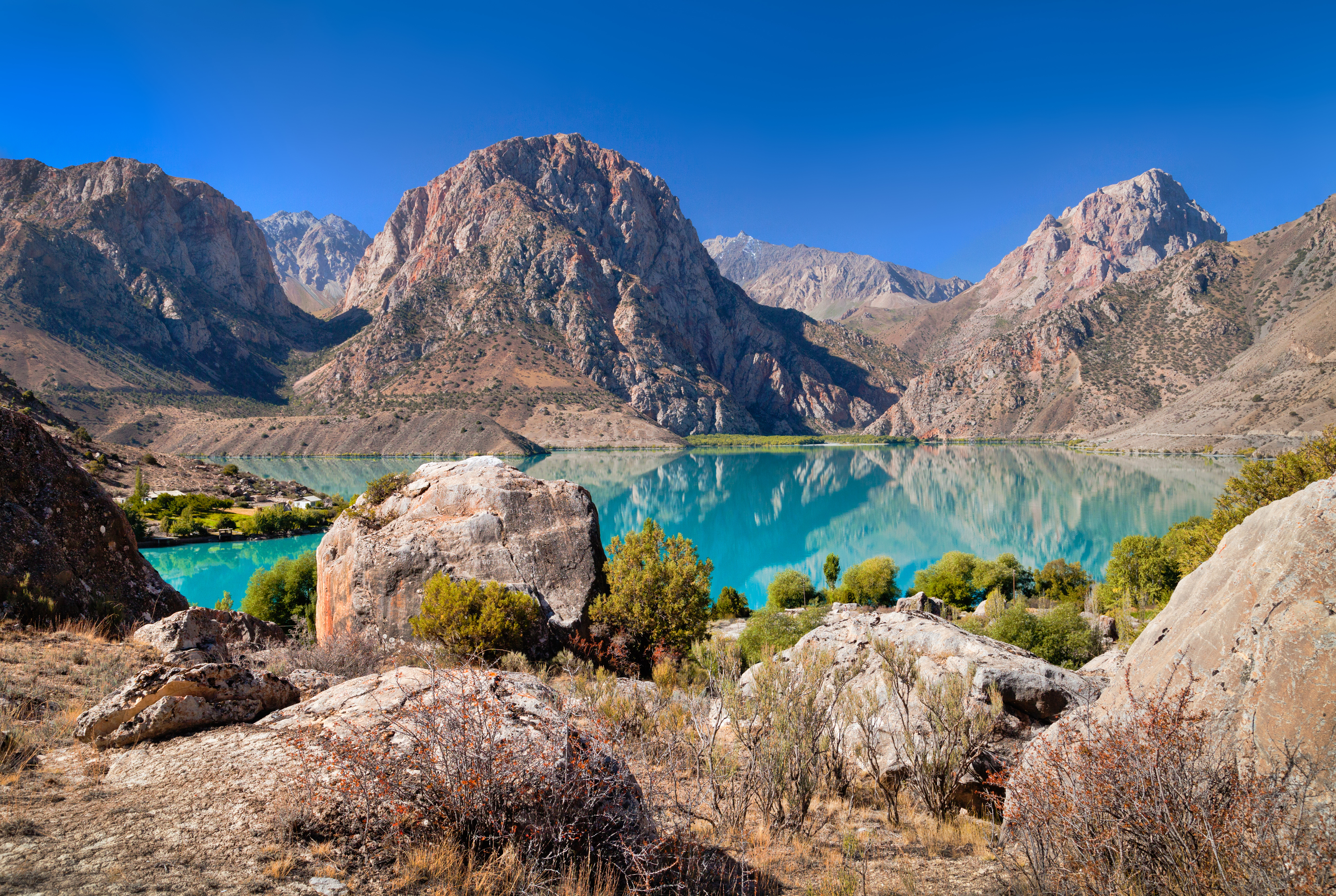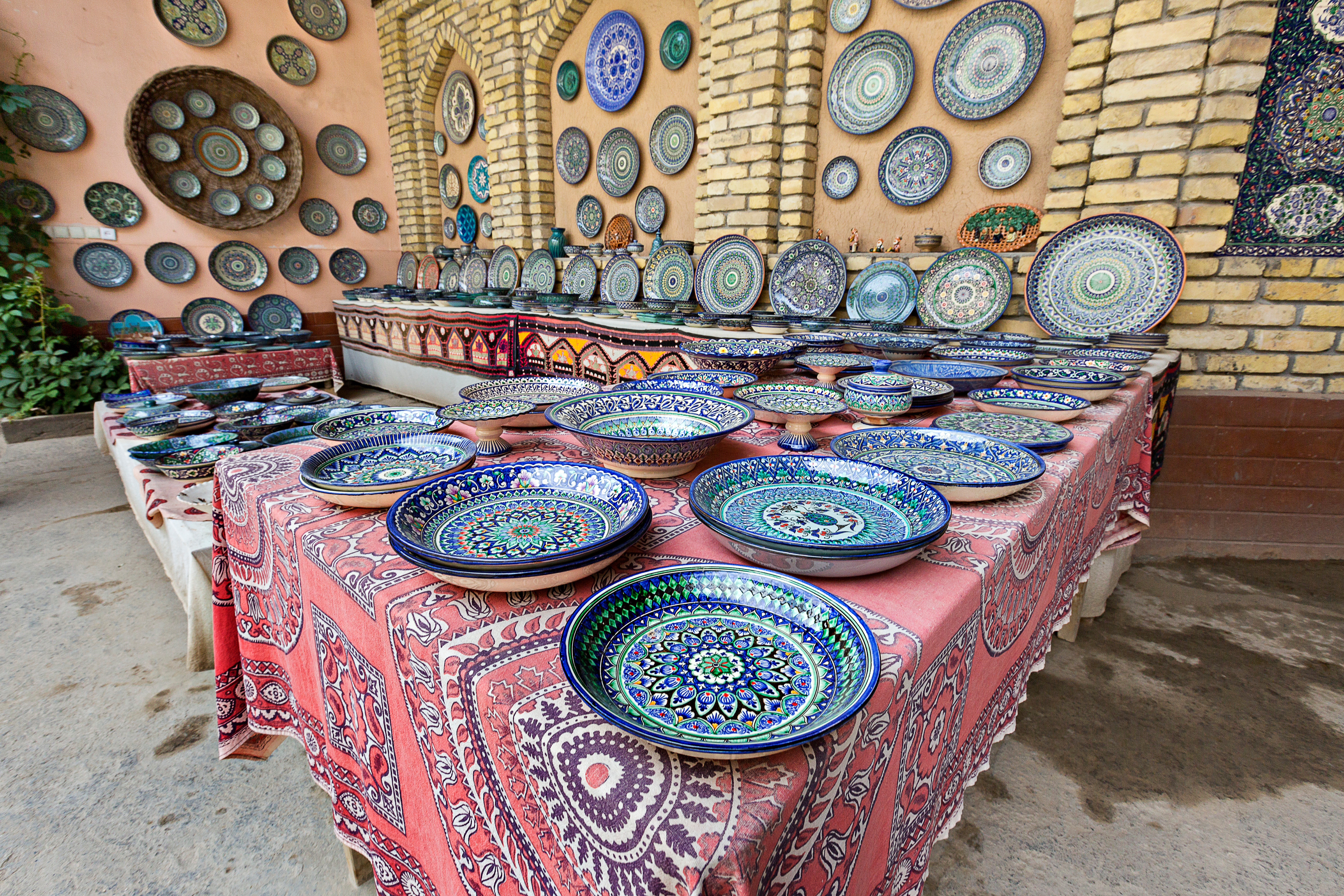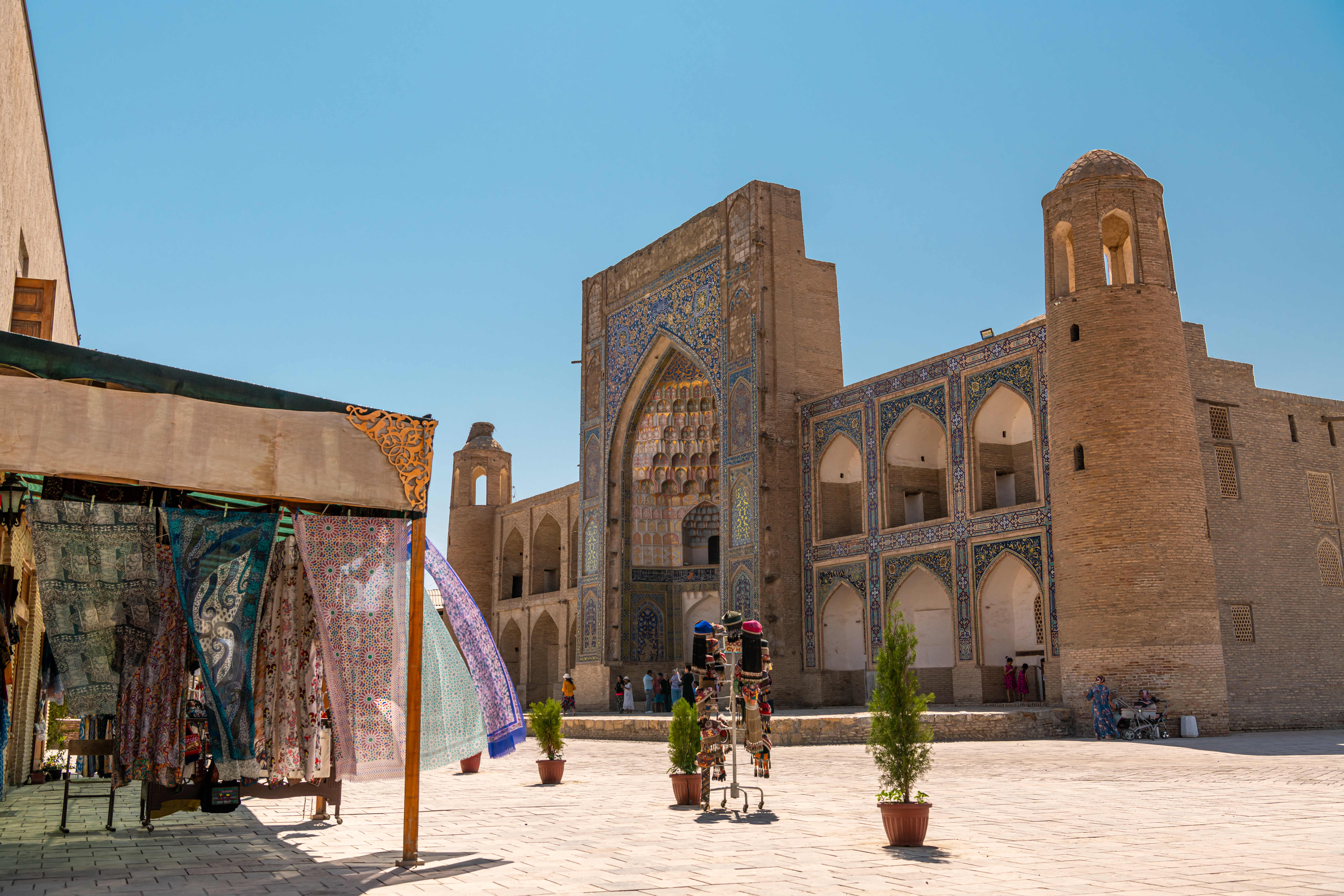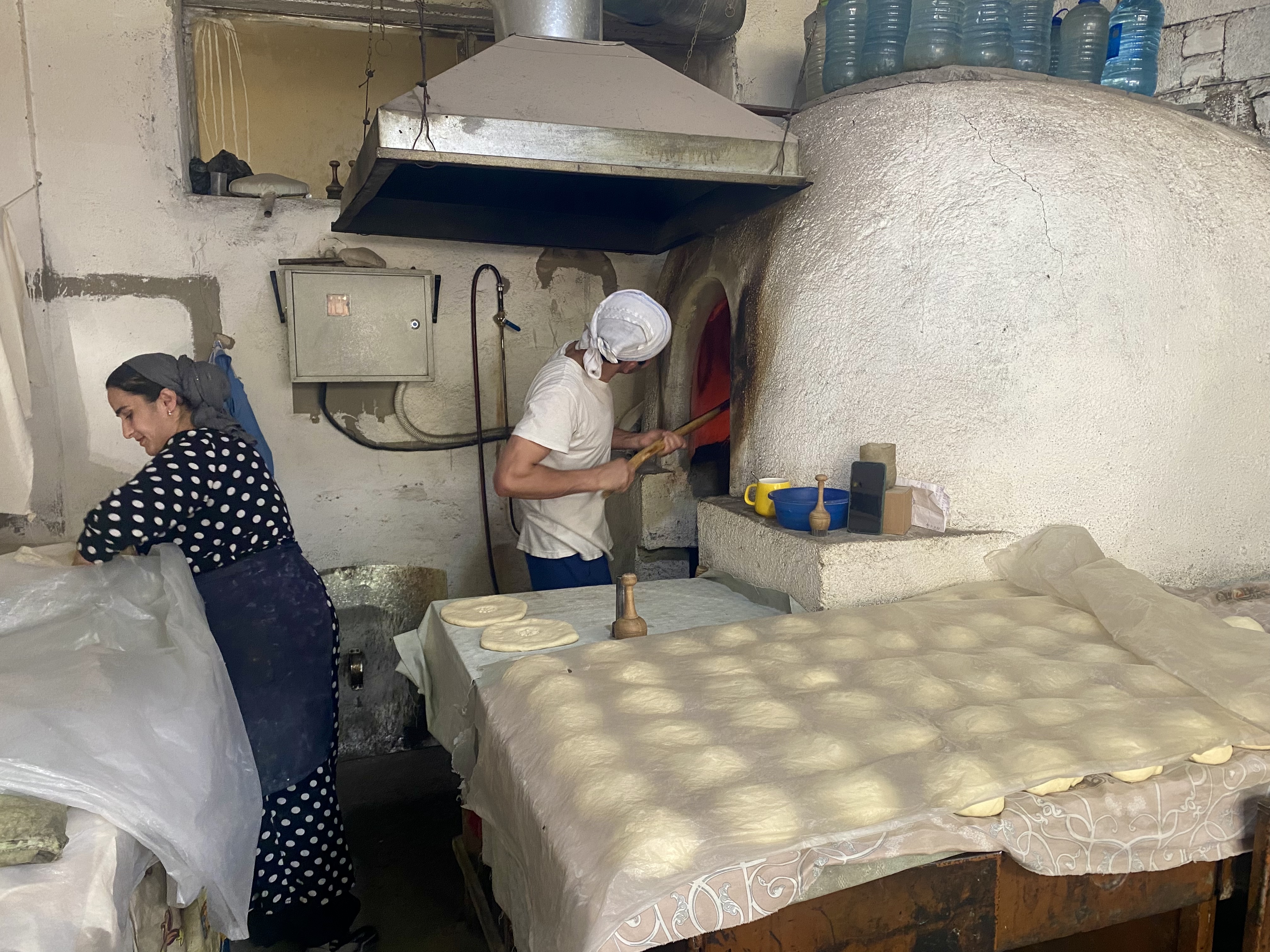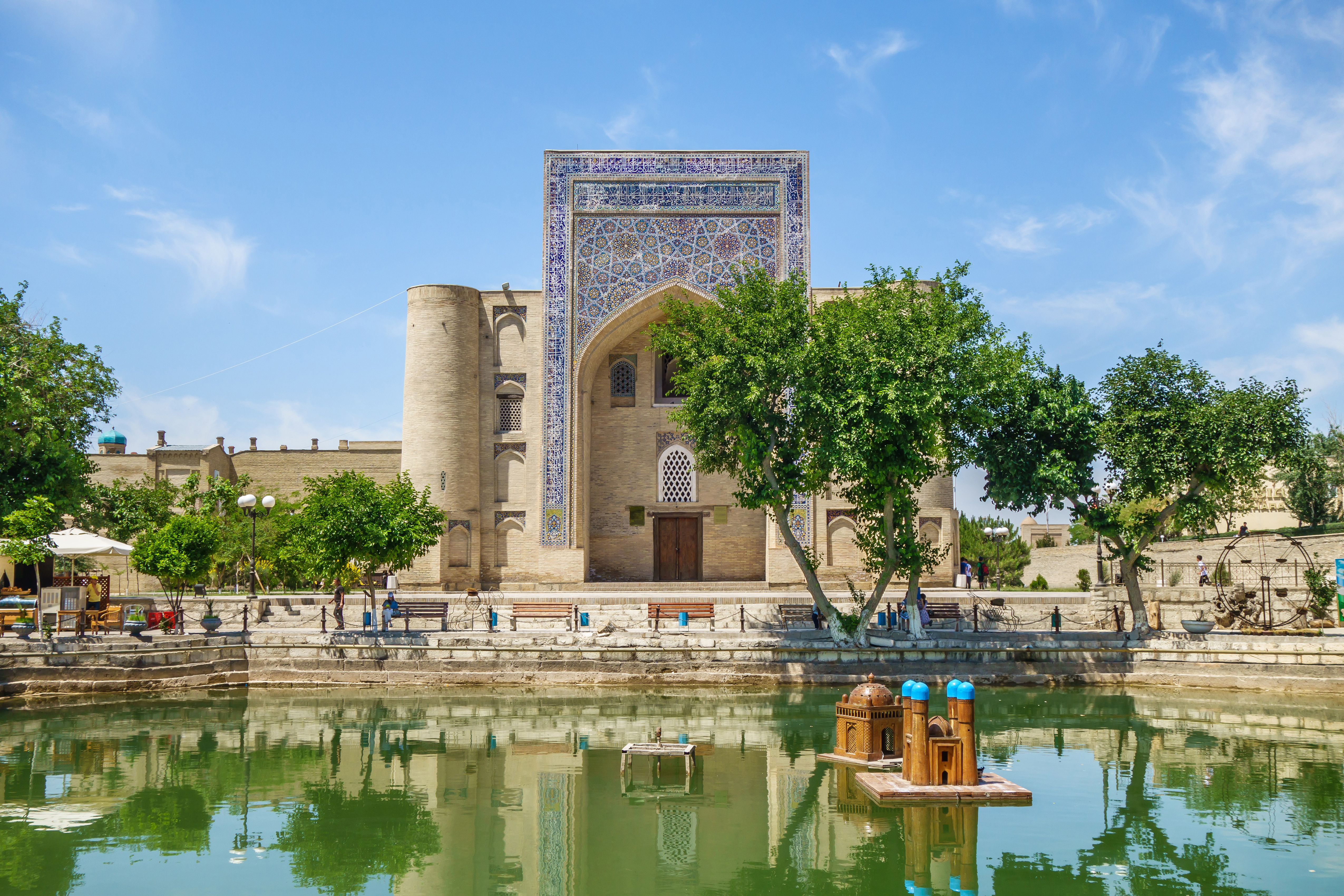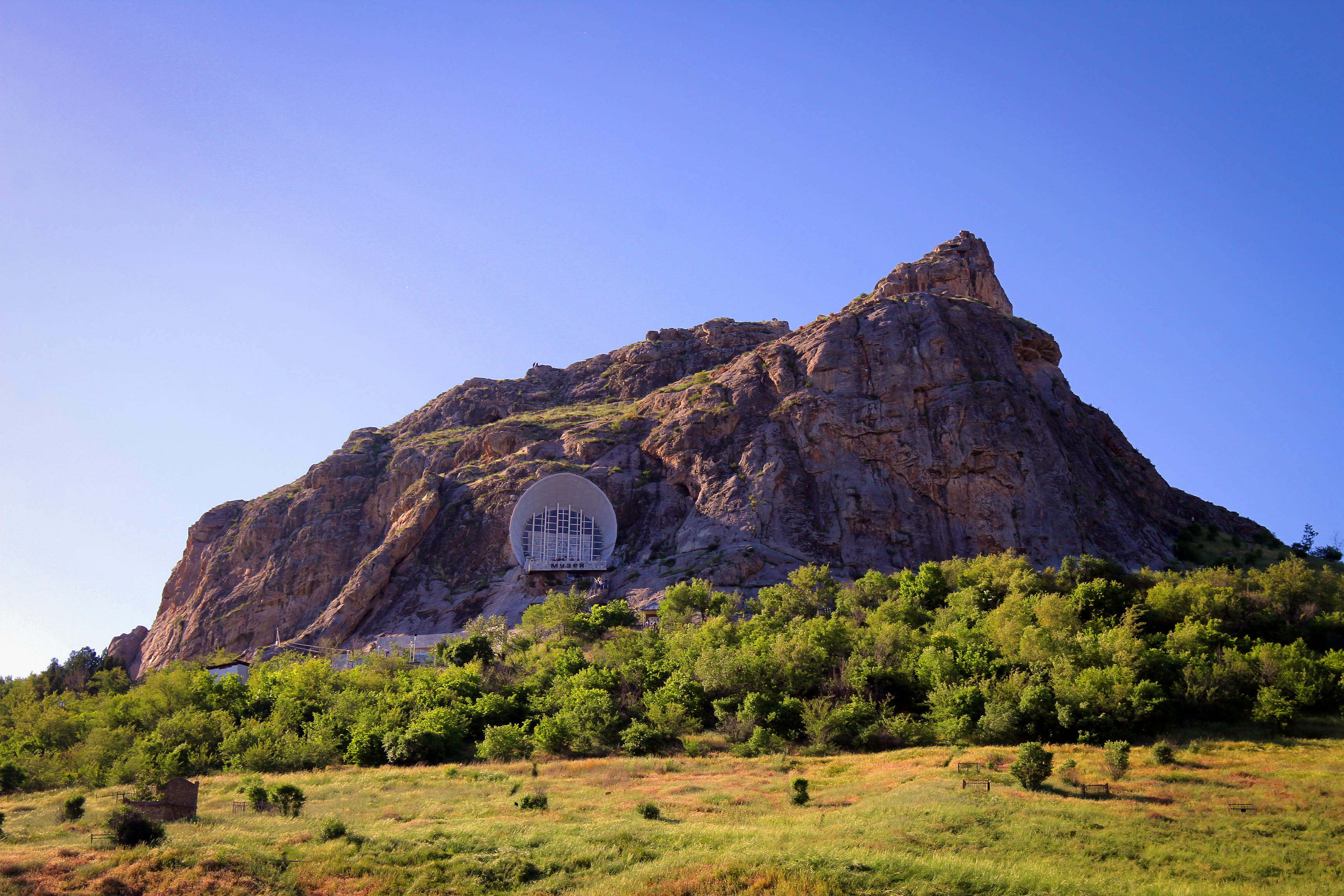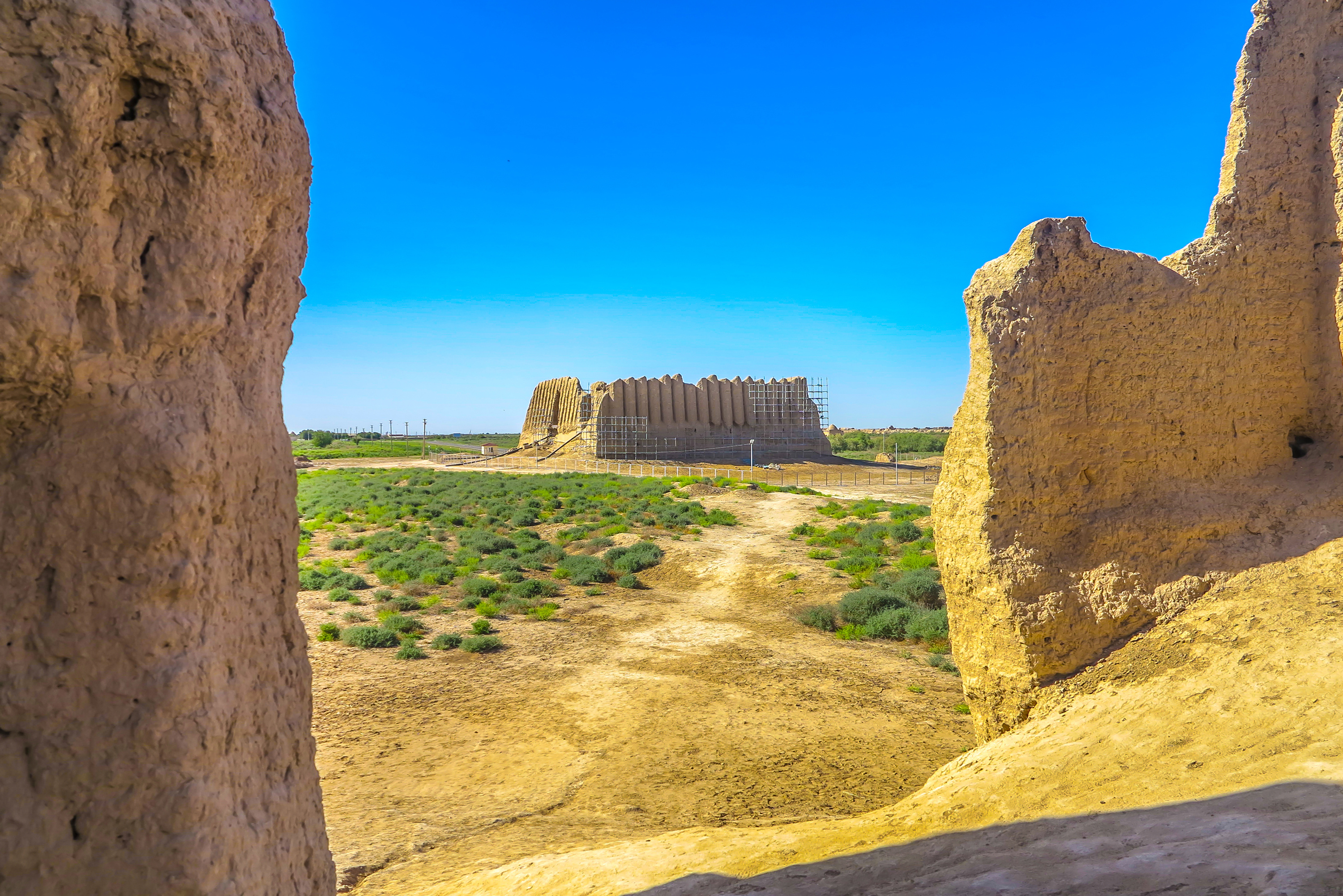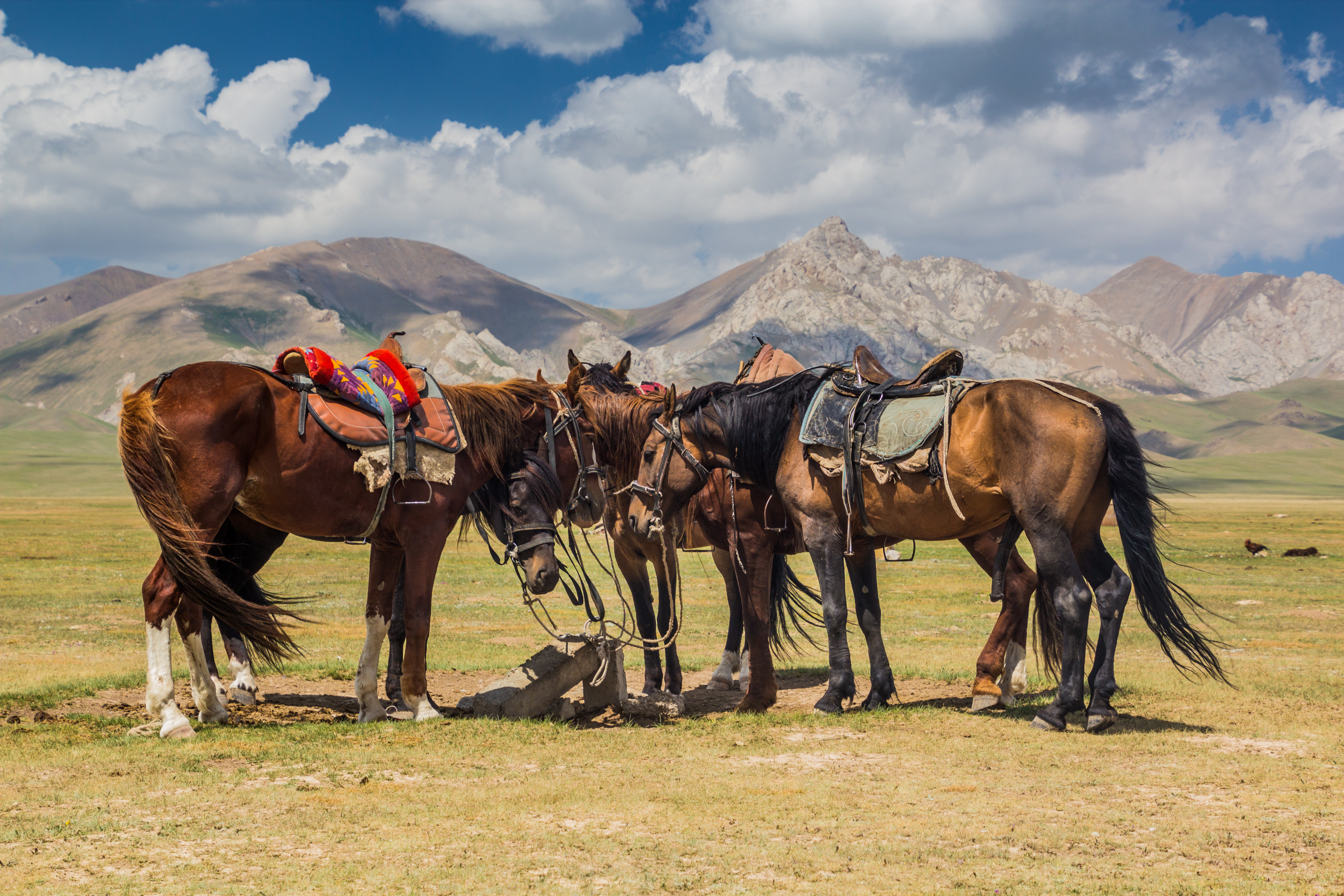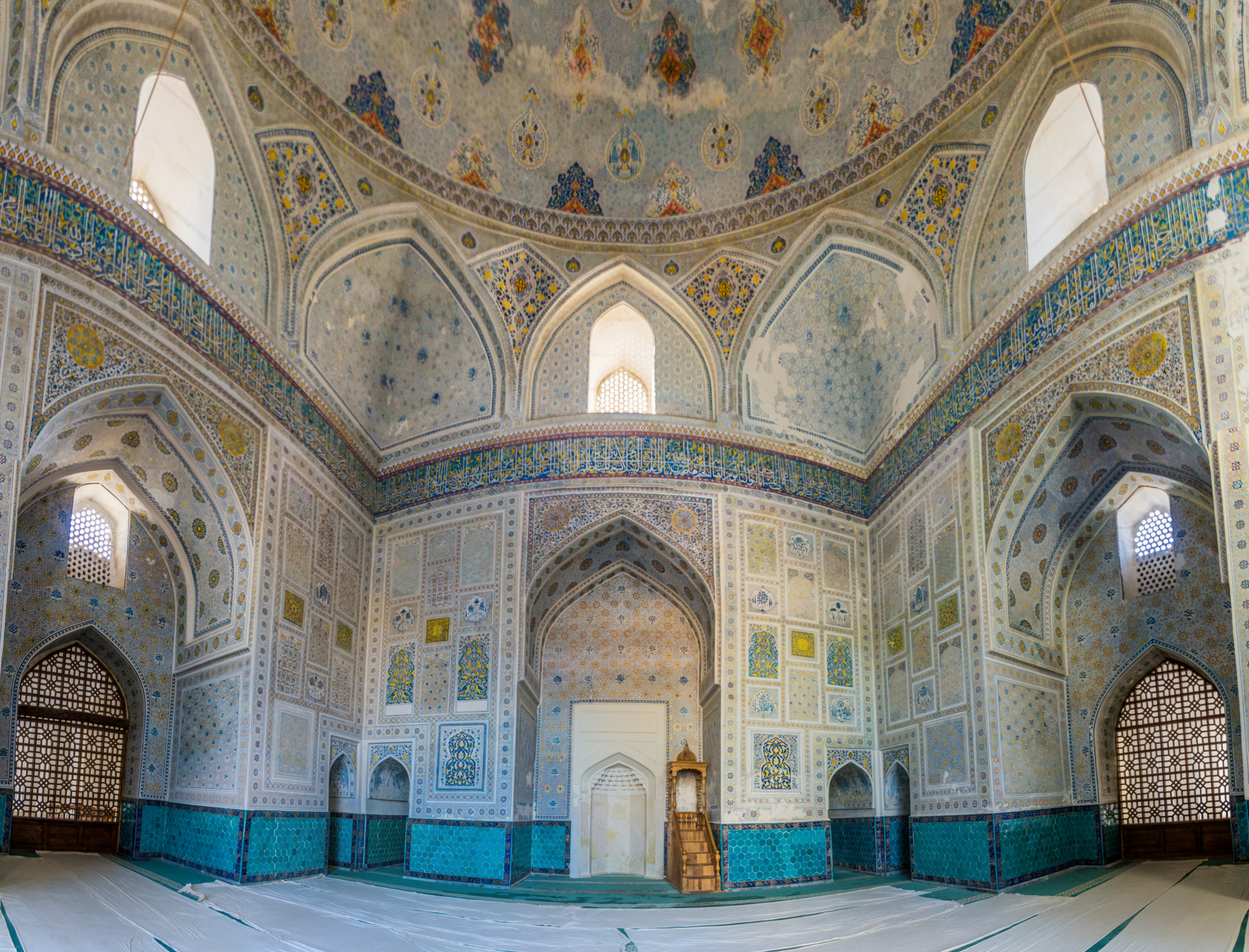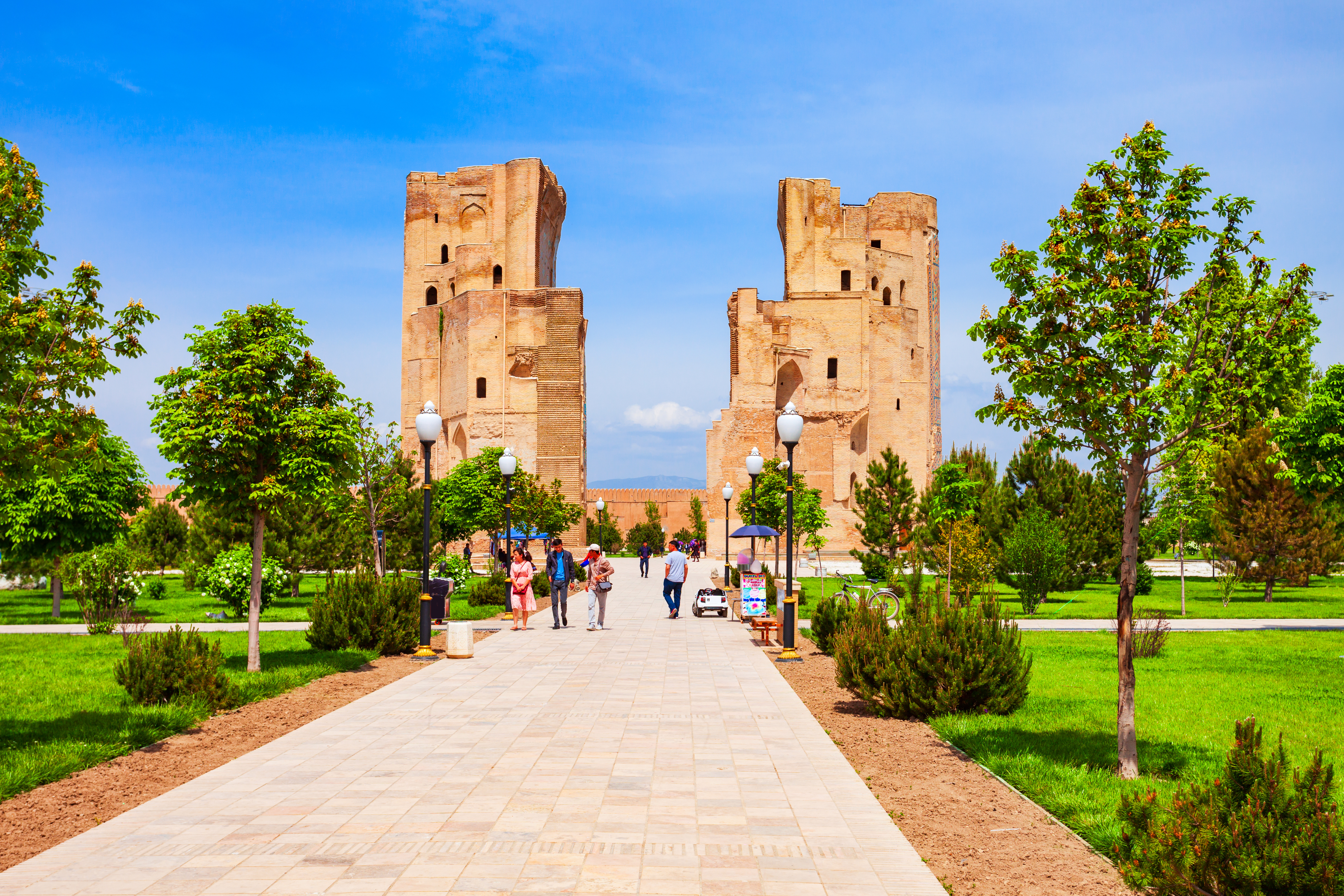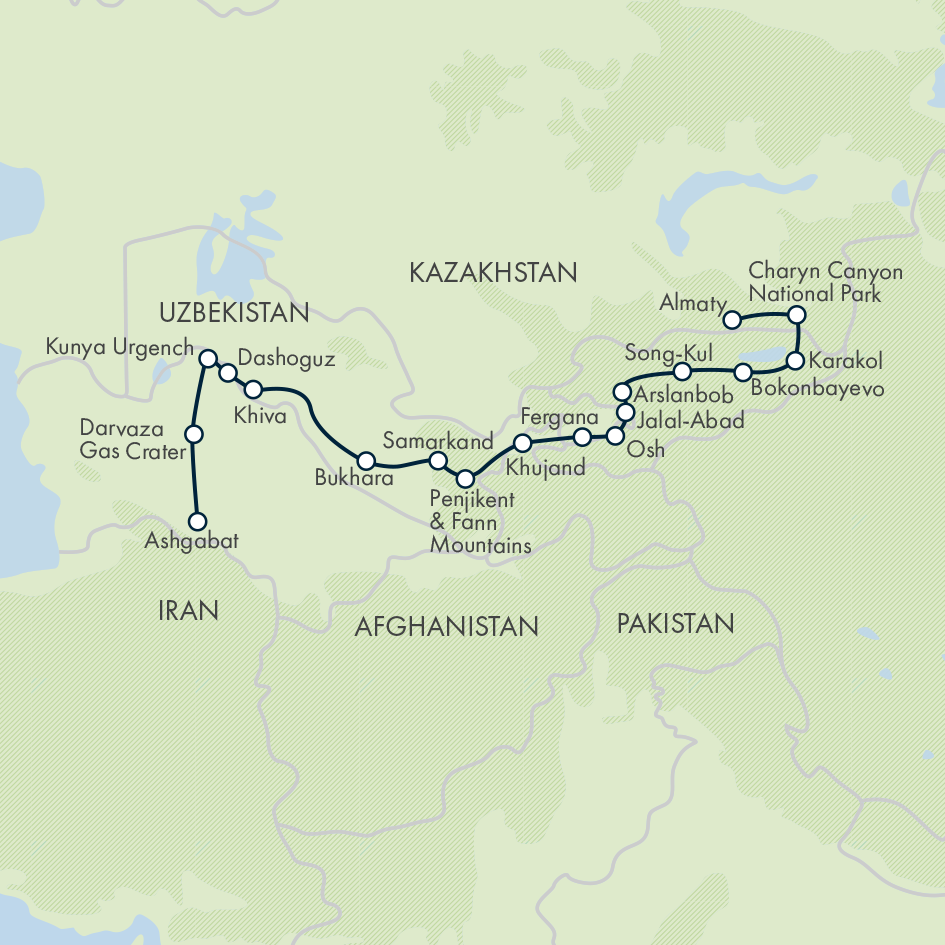The Five Stans of the Silk Road
The Five Stans of the Silk Road
$8398
The Five Stans of the Silk Road
23 Days Starting in Ashgabat and ending in Almaty
Visiting: Ashgabat, Darvaza, Dashoguz, Khiva, Khorezm, Bukhara, Samarkand, Penjikent, Fann Mountains, Khujand, Fergana, Osh, Arslanbob, Son Kul Lake, Issyk-Kul Lake, Karakol, Almaty
Tour operator:
Tour code:
AXK
Guide Type:
Fully Guided
Group size:
4 - 16
Age range:
16-99
Special diets catered:
Please inform Exodus of specific dietary requirements
Tour operated in:
EnglishTrip Styles:
Interests:
Activities:
Tour Overview
Vast deserts, rolling steppe, fertile valleys and majestic mountains form the backdrop to the five former Soviet republics of Central Asia, which are commonly known as the Five Stans. Among this changing and varied landscape are traditional villages, ancient towns and modern cities, which tell a tale of advancing Greek and Persian armies, marauding Mongolian hordes, traders selling wares along the Silk Road, philosophers, astronomers, Communist experiments and post-Soviet eccentrics. Journey past giant burning gas pits, intricately tiled mosques, alpine lakes bordered by yurt camps, grand monuments, rural villages and colourful markets on this epic trip through the heart of Central Asia.
About this trip: We have two versions of this trip, with different departure dates. One starts in Ashgabat, Turkmenistan, and ends in Almaty, Kazakhstan, and the other runs in reverse. Apart from the direction of travel, the two itineraries are similar, the main difference is the route taken through Kyrgyzstan and the accommodation there.
This itinerary (The Five Stans of the Silk Road), which runs from Ashgabat, Turkmenistan, to Almaty, Kazakhstan, includes Son Kul Lake and there are three nights staying in yurts in Kyrgyzstan.
The reverse itinerary (The Five Stans of the Silk Road - Reverse), includes Chon-Kemin and Bishkek and stays in guesthouses and hotels rather than yurts.
Both itineraries include a night in a yurt in Turkmenistan.
Highlights
Itinerary
Day 1 : Arrive Ashgabat
Location: Ashgabat
The adventure begins in Ashgabat, the capital of Turkmenistan. As per Turkmen law, we arrange arrival transfers for everyone in the group. See the Joining Instructions in the Trip Notes for more details. There are no arranged activities today, as many flights arrive very late at night or early tomorrow morning.Accommodation: Hotel Sport (or similar)
Day 2 : Free morning; Ashgabat city tour
Location: Ashgabat
Meals Included: Breakfast
Following what for many people will have been a late night or early morning arrival, our exploration of Ashgabat begins around midday.Ashgabat holds the record for the most white-marble buildings in the world. In the post-Soviet era, successive Turkmen leaders built these impressive buildings as a show of the country’s strength and they make for a surreal sight. Ashgabat has been described as Pyongyang meets Las Vegas, and you can see why.We have a half-day tour of Ashgabat including Ertogrul Ghazi mosque, Independence Park, the Neutrality Arch, Constitution Monument, Alem Ferris Wheel, Magtymguly Monument, Halk Hakydasy Memorial Complex, and the Wedding Palace, which looks over the city from a hilltop.Accommodation: Hotel Sport (or similar)
Day 3 : Visit Nisa; afternoon transfer to Darvaza Crater, the 'Door to Hell'; overnight in traditional yurts
Location: Darvaza
Meals Included: Breakfast, Dinner
After breakfast, we head to Nisa, the capital of the former Persian Parthian Empire, which controlled much of what is now Iraq to Pakistan 2,000 years ago. The ruins here were declared a World Heritage site in 2007. After, we visit the National Museum of Turkmenistan, about a 20-minute drive away.Mid-afternoon, we transfer (4hr 30min) into the Karakum Desert in a 4×4 convoy to a massive burning gas crater known as the Door to Hell in a remote part of the Darvaza region. In the 1970s, Soviet engineers looking for natural gas deposits came across this area. Attempting to assess the gas, they set up a drill. The drill collapsed, exposing a big crater and seeping methane into the air. The engineers decided to set the gas alight believing it would burn off within a few weeks. More than 45 years later, it is still burning. We enjoy a barbecue dinner near the crater and stay overnight in yurts very nearby. Seeing the burning crater by night is an unforgettable experience.Accommodation: Darwaza Yurt Camp
Day 4 : To ancient Dashoguz; visit medieval Kunya Urgench
Location: Dashoguz
Meals Included: Breakfast, Dinner
After breakfast, we transfer to Dashoguz, the capital city of northern Turkmenistan’s Dashoguz Province, and check into our hotel. The region around Dashoguz was part of the Silk Road trade routes that connected East and West.In the afternoon, we visit Kunya-Urgench on the left bank of the Amu Daria River (approximately 1hr 30 drive from Dashoguz). Kunya-Urgench, also known as Old Urgench, was the capital of the Khorezm region, part of the Achaemenid Empire. The old town contains a series of monuments, mainly from the 11th to 16th centuries, including a mosque, the gates of a caravanserai, fortresses, mausoleums and a 195ft (60m) high minaret. The monuments testify to outstanding achievements in architecture and craftsmanship whose influence reached Iran and Afghanistan, and later the architecture of the Mogul Empire of 16th-century India.Accommodation: Hotel Dashoguz (or similar)
Day 5 : Cross into Uzbekistan; tour of Khiva
Location: Khiva
Meals Included: Breakfast, Lunch
After breakfast, we drive to the Shavat border post and say goodbye to our Turkmen leader and cross into Uzbekistan where we meet our Uzbek leader and drive to Khiva, arriving early afternoon. We have time to relax, then take a walking tour of the walled city, the Itchan Kala.Often described as an open-air living museum, the Itchan Kala is Khiva’s perfectly restored old city and includes the coloured tiled base of the never completed Kalta Minar, the Kunya-Ark 12th century fortress (the former residence of the Khiva khans), and the beautiful mausoleum of Pakhlavan Makhmud (Khiva’s patron saint). Many wedding parties and pilgrims visit the tomb and drink the water from the well in the courtyard.We also visit Islam Khoja minaret and madrasah, the Juma mosque, which is supported by 218 wooden carved columns, Tash Khauli palaces, and Allakuli Khan Madrassah. We also explore artisan workshops where we see technology behind the production of Khiva wool, silk carpets, embroidery, ceramics and wood inlay.Accommodation: Malika Khorezm, Khiva (or similar)
Day 6 : Desert castles of Khorezm
Location: Khorezm
Meals Included: Breakfast, Dinner
Head into the arid plains of Khorezm after breakfast. These were once densely populated marshland, inhabited by Messagetae Scythians, nomadic horseback archers who fought to retain the land, even defeating Cyrus the Great, a Persian emperor in 529 BCE. We visit the 2000-year-old ruined city fortress of Toprak-Qala, which has the Sultan Vais Mountains acting as a dramatic backdrop. The settlement began in the first century BCE under Kushan patronage and was later devastated by Turkish raids that led to the depopulation of the town in the sixth century. There are still three large round towers and an impressive portion of the citadel remaining. We also visit Qizil-Qala, formerly an important oasis with an impressive number of remaining buildings, and Ayaz-Qala, an imposing hilltop fortress from the sixth century.Accommodation: Malika Khorezm, Khiva (or similar)
Day 7 : Drive to Bukhara through the Kyzylkum desert
Location: Bukhara
Meals Included: Breakfast
We transfer (seven to eight hours) to Bukhara, one of the most ancient cities of the East. We drive through the Kyzylkum desert and enjoy photo stops in the desert and by the Amu Darya (Oxus) River.Arriving in Bukhara, check into our hotel and have the evening free to relax after our long journey.Accommodation: Sultan Hotel Bukhara/Hotel Kavsar (or similar)
Day 8 : Explore Bukhara
Location: Bukhara
Meals Included: Breakfast
The 2,000-year-old city of Bukhara has an old centre that evokes the many centuries of traders and travellers who’ve passed through here on their way between the Mediterranean and China. We spend the day exploring this fascinating city, including a visit to the historic Lyabi Khauz architectural complex, which has the oldest reflective pool in Central Asia.We also visit: Chashma-Ayub Mausoleum, a sarcophagus over an ancient sacred spring; the Mausoleum of the Samanids, the family tomb of the rulers of Bukhara; Ark Citadel, the residence of Bukhara’s rulers since the first century CE; the Poi Kalyan Complex, home to the 157ft (48m) high Kalyan Minaret; the Kalyan Mosque, which has 288 domes covering galleries below; Nodir Divanbegi Madrasah; and Chor-Minor, a small mosque of an original form.Accommodation: Sultan Hotel Bukhara/Hotel Kavsar (or similar)
Day 9 : Visit the summer palace of the Bukharan emirs; drive to Samarkand
Location: Samarkand
Meals Included: Breakfast, Lunch
This morning, uncover more Bukharan history and culture as we explore the Sitorai-Mohl-Hosa Palace, the summer palace of the emirs. The rooms are decorated with magnificent paintings, stucco, wood carvings and ganch. After lunch, we drive (four to five hours) to the other great Silk Road city, Samarkand. We break up the journey with a short stop at Gijduvan, where we visit the house of the famous dynasty of pottery masters, the Narzullaevs.Accommodation: Malika Prime (or similar)
Day 10 : Explore Samarkand
Location: Samarkand
Meals Included: Breakfast, Dinner
Possibly the most famous of the Silk Road cities, Samarkand has blue-tiled buildings that dazzle in the bright sun. Dating 2,500 years old and impacted by such figures as Alexander the Great, Genghis Khan and Tamerlane, it is home to one of the world’s great squares, Registan Square, surrounded on three sides by the madrassahs of Ulugh Beg, Sher-Dor and Tilya-Kori.The city was the capital of the Tamerlane, and we spend the day visiting a number of Tamerlane-era sites, including the Gur-Emir Mausoleum, burial place of Tamerlane, his sons and his grandson, Ulughbek. The Ulugbek Observatory was built in 1420 by Tamerlane’s grandson who was not just a ruler but also a well-known astronomer.We move to the oversized Bibi Khanum Mosque and Shakhi Zinda (the ‘Living King’ necropolis) where the mausoleums date to the 14th and 15th centuries. Our final visit is to the Siab Bazaar with its fresh and dried fruit and nuts and other local food produce, plus a paper factory. The exact order of visits may vary.Accommodation: Malika Prime (or similar)
Day 11 : Cross into Tajikistan; Sarazm and Penjikent
Location: Penjikent
Meals Included: Breakfast, Dinner
Drive to the Tajik border early this morning. We cross into Tajikistan, meet our local guide and transfer (20 minutes) to the town of Penjikent.Our first stop is the World Heritage site of Sarazm, which dates back 5,500 years. In Penjikent, we enjoy a tour (three to four hours) that takes us to the Museum of Rudaki (Rudaki is considered by many to be the father of Persian poetry and he was born in Penjikent) and ancient Penjikent, ruins of a fifth-century Sogdian town founded, which was abandoned in the eighth century. We also explore the remains of houses, a citadel with Zoroastrian fire temples and a bazaar in the excavated ruins.Accommodation: Panjakent Plaza Hotel (or similar)
Day 12 : Explore the Seven Lakes in the Fann Mountains
Location: Fann Mountains
Meals Included: Breakfast, Lunch, Dinner
Take a trip into the heart of the Fann Mountains. We drive (50mi/80km) to Seven Lakes (Haf Kul in Tajik) in the Shing Valley, taking a sometimes bumpy and narrow road. The high mineral content in the water gives the lakes an unusual colour. We have time to enjoy the mountains, with a walk to Hazorchashma Lake and a picnic lunch in the village of Nofin before we return to Penjikent.Accommodation: Panjakent Plaza Hotel (or similar)
Day 13 : Drive to Khujand via Istaravshan
Location: Khujand
Meals Included: Breakfast, Dinner
Leaving the Fann Mountains, head into the industrial and agricultural heartland around the city of Khujand (about four hours’ drive). En route, visit the town of Istravashan founded by the Persian king Kier in the sixth century, and visit the bazaar.While Khujand, today, is not the most attractive of cities it has a complex history. Believed to be one of the oldest in Central Asia, it was attacked by Alexander the Great, Arab invaders and Genghis Khan, as well as being an important Silk Road stop. There are still traces of the glory days and we take a tour of the sites, including the Musuem of Archeology, Sheikh Maslikhiddin Mosque, the Payshanba bazaar and, if time, Arbob Palace, the Urumkhodjaev family country estate, a copy of the Russian tsarist palace of Peterhof.Accommodation: Khudjand Delux Hotel (or similar)
Day 14 : Khujand; back into Uzbekistan; Rishtan and Margilan
Location: Fergana
Meals Included: Breakfast
Return to Uzbekistan via the border crossing at Andurkhan, where we say goodbye to our Tajik crew and re-join the Uzbeks.The total driving time to Ferghana town is about five hours from Khujand, but we make several stops along the way. The first is at Kokand, which was the capital of the 19th-century Kokand Khanate. We visit the Khudoyar-Khan Palace (1871) home to a museum, the Norbuta-Biy Madrassah and the Modarikhon Mausoleum.From here, continue to the small village of Rishtan, home to potter dynasties and ceramics masters. We visit a ceramics studio and witness a demonstration of the craft before the opportunity to buy earthenware.Our final stop is at Margilan, where we visit a silk factory and learn about the material that gave its name to the greatest trade route in history. Eventually, we arrive in Fergana town where we spend the night.Accommodation: Hotel Asia Fergana (or similar)
Day 15 : Cross into Kyrgyzstan; visit Osh and Uzgen
Location: Osh
Meals Included: Breakfast
Transfer to the Kyrgyz border this morning and say goodbye to our Uzbek leader. After border formalities at the Dustlik crossing, we meet our Kyrgyz leader and head into nearby Osh, the second-largest city in Kyrgyzstan. We visit the sacred Sulayman Mountain, a holy Muslim site (and burial place of the prophet Sulayman (Solomon) and the central point on the Silk Road. The walk to the top of Sulayman Mountain is paved with some steps and can be tiring in the heat but the views over the city and valley below, small museum and 15th-century church are worth the effort.On the way to Jalal-Abad, we make a sightseeing stop at Uzgen. We take an excursion to an old minaret and mausoleums nearby and visit a rice bazaar. Uzgen has a history of over 2,000 years — it is claimed to be a site of numerous citadels built at various times since the first century BCE. It was an important centre of trade routes between the Fergana Valley and northern territories of Central Asia. Uzgen became a highly developed town in the Karakhanid’s epoch and developed into a large trading and handicrafts centre.Accommodation: Guesthouse Goodnight (or similar)
Day 16 : Arslanbob Nature Reserve
Location: Arslanbob
Meals Included: Breakfast
Leave Jalal-Abad and transfer (approximately 1hr 30min) to Arslanbob Nature Reserve. The village of Arslanbob is in the mountains at around 5,250ft (1,600m) – though the top and bottom of the village vary considerably in altitude – and is surrounded by an ancient walnut forest believed to be the largest in the world.We go for a walk and picnic lunch in the surrounding countryside. The walk takes around four hours (including lunch and stops) and requires walking shoes/boots. The pace is leisurely but if anyone prefers not to join, you are free to opt out.After, we return (approximately 1hr 30min drive) to our guesthouse in Jalal-Abad.Accommodation: Guesthouse Goodnight (or similar)
Day 17 : To Son Kul Lake
Location: Son Kul Lake
Meals Included: Breakfast, Dinner
Leaving the gorges, we head towards the high pastures around Son Kul Lake (9,895ft/3,016m above sea level). The journey takes approximately seven hours, including some rough roads. A new road is under construction and is expected to shorten the journey from 2025, but this cannot be guaranteed.The jewel in the Kyrgyz crown for natural beauty, here nomadic shepherds tend their flocks. Today, yurt camps have multiplied around the lake, but the people who look after them still raise their sheep and cattle on the jailoo (high mountain pastures).We experience the nomad life with a stay in a yurt camp. There are now Western-style toilets and a ‘shower yurt’ with proper showers and wash basins. There is hot water when the generator is running (usually morning and evening) but it is not wholly reliable.Accommodation: Yurt camp
Day 18 : Son Kul Lake
Location: Son Kul Lake
Meals Included: Breakfast, Dinner
Spend today soaking up the beauty of the landscape around Son Kul. There is the option to go on a 2hr to 2hr 30min walk to the nearby hills – the slopes are quite steep, and this may not be for everyone, but at the top are a few petroglyphs to admire.After lunch, we visit one of the Kyrgyz shepherd families close to camp to learn about their lifestyle and perhaps taste kumis (a natural drink made from fermented mare’s milk) or another local produce. There is also the option to go horse-riding (optional extra).Accommodation: Yurt camp
Day 19 : Along the southern shore of Issyk-Kul Lake
Location: Issyk-Kul Lake
Meals Included: Breakfast, Dinner
Our journey today first takes us to Kochkor, Kyrgyzstan’s most important centre for felt handicrafts. We visit a workshop and can participate in the manufacturing of national carpets.From Kochkor, we travel through the central Tien Shan mountains, driving through picturesque canyons and gorges along the southern shores of Issyk-Kul, the second-largest salt lake in the world, measuring 43mi by 112mi (70km by 180km) and almost 2,300ft (700m) deep. Its name means Hot Lake and was given as it never freezes, even in the depths of winter. The surrounding area is a mixture of forest and meadow with a backdrop of towering mountains and glaciers.We have an optional excursion (approximately US$100-US$120 per group) at Bokonbaev village to observe a traditional form of falconry found throughout Central Asia – hunting with eagles. Eagle hunting plays a key role in the nomadic lifestyle here and can also be seen during national competitions.Accommodation: Yurt camp
Day 20 : Transfer to Karakol; sightseeing tour
Location: Karakol
Meals Included: Lunch
This morning, we continue our journey to Karakol. We head first to Barskoon Gorge, known for high waterfalls and dense spruce forests and visited by Yuri Gagarin, the first man in space. We hike to a waterfall called Bowl of Manas (named after the Kyrgyz national hero). Next is Djety Oguz Gorge where the Seven Bulls and Broken Heart rocks formations can be seen. From Djety Oguz, we continue to Karakol. There are about 2hr 30min of driving in total today.The atmosphere of Karakol town takes you a hundred years back and gives you an impression of Tsarist Russia. We enjoy a sightseeing tour of Karakol, taking in old Russian-style houses, a Russian Orthodox church dating to 1886, a wooden Dungan mosque (1899) made without the use of nails, and Karakol bazaar.This evening, we enjoy a home-cooked meal at a Uygur or Dungan family home.Accommodation: Amir Hotel (or similar)
Day 21 : Visit Charyn Canyon; to Almaty, Kyrgyzstan
Location: Almaty
Meals Included: Breakfast
Cross the Kyrgyz-Kazakh border and, after border procedures (which typically take about an hour), travel along the picturesque Karkara valley, where mountain flowers attract many beekeepers. We head towards Charyn Canyon, where the dramatic erosion caused by the Charyn river has created an impressive landscape. We have approximately three hours at the Charyn Canyon, there is the choice of walking 1mi (1.5km) down into the canyon (and the same back up after), or an easier option is to enjoy the canyon from a viewpoint. There is time for a picnic lunch in the canyon (you can buy your picnic from a supermarket earlier in the day). After visiting the canyon, we continue to Almaty. There are about six hours of driving today.Accommodation: Uyut Hotel (or similar)
Day 22 : Explore Almaty; see Panfilov Park
Location: Almaty
Meals Included: Breakfast
Almaty is a beautiful city with its backdrop of the Tien Shan mountains, and we have the whole day to explore. With leafy streets and a cafe culture, the former Kazakh capital has a distinctly European feel. We set off on a city tour after breakfast, visiting a number of sites, including Zhenkov Cathedral (Ascension Cathedral), made entirely of wood and without the use of nails, Panfilovs Park, home to the Piously-Voznesenskiy Orthodox Cathedral (1907), which was built without any nails, the Great Patriotic and Civil War monuments and eternal flame, and either the National History Museum or Museum of National Instruments.Accommodation: Uyut Hotel (or similar)
Day 23 : End Almaty
Location: Almaty
Meals Included: Breakfast
Our adventure comes to an end in Almaty after breakfast.
What's Included
-
All accommodation
-
All breakfasts, one lunch, and five dinners
-
All transport and listed activities
What's Not Included
-
Travel Insurance
-
Single accommodation (available on request)
-
Visas or vaccinations
Accommodation
Ashgabat: Sport Hotel
A four-star hotel in the heart of Ashgabat, close to the city’s major attractions. It has spacious and well-appointed rooms, plus several amenities, including a swimming pool, fitness center, sauna, and restaurant.
Bukhara: Kavsar Boutique Hotel
Taking over an old mansion, this small boutique hotel is one of the standout accommodations on this itinerary. It’s embellished with intricate design features and plenty of antiques, while an atmospheric central courtyard provides a wonderful place to gather as a group.
Darvaza, Son Kul and Issyk Kul: Yurt camps
Yurts are traditional housing for nomadic communities across Central Asia and are generally quite cosy. We have four nights in yurts: one night in Darvaza near the Door to Hell crater, and two nights at Son Kul Lake and a night by Isyyk Kul lake.
For the two nights in the yurt camp at Son Kul (nights 17 and 18), you may have to share with four people to a yurt. Men and women who are not travelling together don’t usually have to share a yurt, but this cannot be guaranteed.
The yurts at Son Kul have Western-style toilets and a ‘shower yurt’ with proper showers and wash basins. There is hot water when the generator is running (usually morning and evening) but it is not wholly reliable.
Almaty: Uyut Hotel
In the centre of Kazakhstan’s largest city, this modern hotel is a 25-minute drive from Almaty International Airport. It has a heated indoor pool, sauna, laundry service, bar and restaurant serving Asian, European and Eastern cuisine.
Worth knowing
If you prefer to have your own room, a limited number of single supplements are available on a ‘first-come, first-serve’ basis on some nights of the tour – please request this at the time of booking. Please note, a single supplement is not available at the yurt camps.
In Turkmenistan, hotels charge a daily tourist tax of around US$2 per person per day – this is included in the price for the main tour, so you needn’t worry about it. However, if you book extra nights’ accommodation in Ashgabat before the tour, you will need to pay directly to the hotel yourself. If you book pre-tour accommodation in Turkmenistan (and will be staying in the country for more than three days plus your arrival day), you will be required by law to register your passport with the State Service of Turkmenistan – our local partner will assist with this.
Food
Another main staple is bread, especially in Uzbekistan where it is freshly baked and sold everywhere; in Turkmenistan, churek is a flat, round bread baked in clay ovens. Other traditional dishes include chorba, a meat and vegetable soup; manty, steamed dumplings filled with lamb; qu’urma, a lamb dish; ichlekli, a meat and onion pie; and gutap, a pie filled with meat, potatoes, spinach and pumpkin. There are normally a couple of opportunities to try home-cooked meals. Tea is also plentiful, both black and green, and drunk with most meals and throughout the day.
Please note, vegetarian food choices are limited. If you are vegetarian or have any special dietary requirements, please notify us well in advance. In this region, the availability of certain specialised products for restricted diets, eg gluten-free or dairy-free, is minimal or non-existent and we strongly recommend you bring such specialised dietary items from home.
Drinking water is included and where possible will be provided in large containers for you to refill your bottle from – please bring a reusable bottle with you.
Check out our Q&As
-
Is there a supplement for solo travellers?
If you would like to be paired with a tour member of the same gender, there is no additional charge. A single supplement can be requested if you would like your own room.
-
Are the local guides on the tour English speaking?
Yes, our local guides are English speaking.
-
Can you assist with pre or post tour accommodation?
We are happy to assist with pre and post tour accommodation. Please enquire for detailed information.
-
Are flights included in this tour?
International flights are not included with this tour.
-
Are children permitted to take part in the tour?
The minimum age for this tour is 16 years old.
-
Who is Exodus Travels?
At Exodus Travels, we've been exploring the world for nearly 50 years. From Walking and Trekking, Cultural and Cycling, Responsible Wildlife, to Polar and our new Premium Adventures, we are proud to offer award-winning small group and self-guided tours to 100+ countries worldwide.
-
What happens if I need to change my holiday date once I’ve booked?
If you wish to make any changes to your booking, particularly if you need to alter any flights booked through us, please let us know as soon as possible. There is a booking or flight amendment fee of £40 per change and flight amendments often incur extra airline costs depending on the changes to be made and if the ticket has been issued or not.
-
How long has the tour company been trading?
Exodus has been trading since 1974
-
What documents will I receive before I travel?
Your final joining instructions and flight details, if booked with us, will then be sent out 2 to 3 weeks before departure. If you would like a hard copy posted, or if you require these any earlier, please contact the customer operations team. We advise that if you are booking connecting travel before receiving these, please ensure you leave plenty of time.
-
Do you operate a “single share” option and how does it work?
Travellers are welcome to opt to share a room with a tour member of the same gender for no additional charge. If you'd like your own room, we can request a single supplement so that you will have your own room throughout.
-
Can I join the tour once it has departed?
You are welcome to meet the group after the tour has departed however there is no reduction in rate for joining a tour after the departure date.
Reviews from travellers on this tour
1 Select your preferred date
Book with Confidence
-
Transfer as credit for future tours
Exodus Adventure Travels allows you to transfer existing payments to a future tour to avoid cancellation fees if you can't travel and inform exodus adventure travels, 90 days before departure.
-
Low Deposit
Exodus Adventure Travels requires a minimum deposit of 25% or the full booking value, whichever is less, with the final balance not due until 120 days before departure.
-
Cancellation Policy
We don't charge a cancellation fee, here is a summary of exodus adventure travels charges.
Up to 90 days before tour starts: Forfeit 100% of deposit.
At 89 days before tour starts: Forfeit 50% of booking price.
At 51 days before tour starts: Forfeit 75% of booking price.
At 30 days before tour starts: Forfeit 100% of booking price.
